Study Korea:
Dankook University
Learn Globally. Live Fully.
Your world-class education starts here — and it doesn’t stop at the classroom door.
At Stanley Abroad, we help adventurous U.S. students like you step beyond the familiar and dive into the vibrant heart of South Korea. Picture this: earning U.S. college credit while savoring authentic Korean street food, mastering a new language, and making lifelong international friends. With trusted university partners and full support every step of the way, this is more than study abroad — it’s a launchpad for your global future.
Kick off your journey at Dankook University, one of Korea’s most dynamic campuses — and stay tuned as we expand into other incredible destinations across Asia.
Programs at Dankook University
Welcome to a study abroad experience that combines academic excellence, cultural immersion, and real-world personal growth. Through our partnership with Dankook University, Stanley Abroad offers you the opportunity to study in South Korea, earn U.S. college credit, and explore one of the most exciting countries in the world.
About Dankook University
Live, Learn, and Grow at Dankook University
Founded in 1947 as Korea’s first private university established after independence, Dankook University has built a strong legacy of academic excellence, innovation, and global engagement. With a student body of over 20,000 and a growing international community, Dankook offers a forward-thinking education that blends rigorous academics with practical, cross-cultural experience.
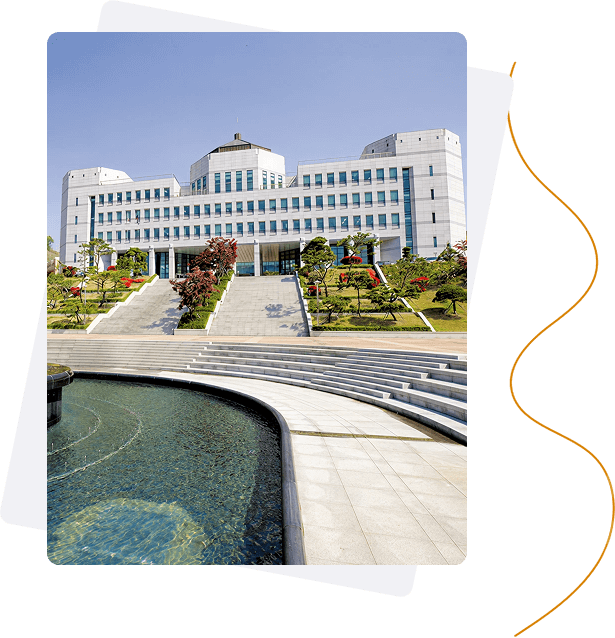
Academics
- First Private University Post-Independence
- Two Vibrant Campuses
- Over 100 global university partners.
- Korea’s First University-Run Hospital System
- Notable Alumni

Park Tae-hwan – Park Tae‑hwan is an Olympic gold medalist in swimming from the 2008 Beijing Games, and attended Dankook University. His international fame in the sports arena extends well into the U.S. athletic community.

Ha Ji Woon – Ha Ji-won is one of South Korea’s most successful actresses, celebrated for her versatility in blockbuster dramas like Secret Garden, Empress Ki, and Hospital Ship. She studied Theater and Film at Dankook University, solidifying her reputation as one of DKU’s most high-profile alumnae.
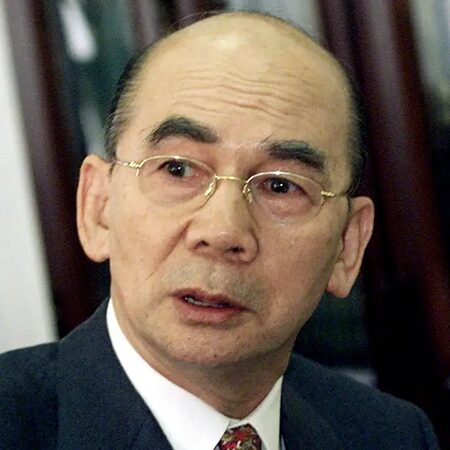
Park Tae‑Joon – Founder and long-time chairman of POSCO, one of the world’s largest steelmakers, he is credited with spearheading South Korea’s rapid industrialization. He also founded POSTECH and served as a National Assembly member and Prime Minister, making him one of DKU’s most influential alumni.
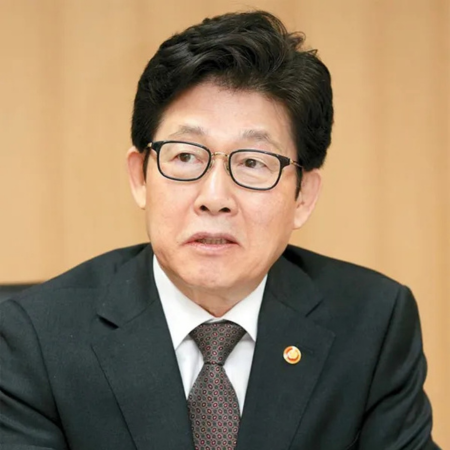
Cho Myung-rae – Cho Myung‑rae is an urban planner and academic who served as South Korea’s Minister of Environment from 2018 to 2021. A Dankook University alumnus (Bachelor in Regional Development), he’s noted internationally for leading environmental policy and sustainability efforts.

Ji Chang-wook – Internationally acclaimed actor known for Healer, The K2, and recent streaming hits. He studied theatre/film at Dankook University’s Department of Performing Arts and is widely cited as a DKU alumnus
Students may choose from a wide variety of English-taught courses across disciplines like:
Business, Economics & Management
| Course Name | Description | Units | Download |
|---|---|---|---|
| Basic Marketing | This course aims to explore the marketing strategies employed by international companies across various industries. It addresses the essential concepts and issues required for their successful implementation and operation. The primary goal of this course is to familiarize students with the key components of crafting marketing strategies for products or services. This course covers various aspects of marketing, including market research, consumer behavior, product development, pricing strategies, promotion, and distribution. | 3 | Download PDF |
| Business Law | This course is intended to introduce students to the basic concepts and problems of business law and of the legal system. The course will provide an overview of the laws that shape the way business is carried on, the manner in which business affairs and managements are mediated by relevant legal mechanism. This course will examine the important legal aspects of business affairs with special emphasis on contract law, tort law and corporation law. Please note that there are no particular official textbooks for this course. Very detailed lecture notes will be provided for each class. All students will be asked to complete the review of each lecture's notes before attending the class. You MUST have the lecture notes when you come to class, as each class will proceed on the basis of the lecture notes!!!! | 3 | Download PDF |
| Business Statistics | This course will introduce you to business statistics, or the application of statistics in the workplace. Statistics is a course in the methods for gathering, analyzing, and interpreting data. In this course, you will learn how to apply statistical tools to analyze data, draw conclusions, and make predictions of the future. The course will begin with data distributions, followed by probability analysis, sampling, hypothesis testing, inferential statistics, and, finally, regression. The objective of this course is to provide the student with an introduction to the basic theory of statistics and to provide them with an opportunity to develop their skills in management decision-making (by gathering and analyzing data). The majority of the in-class lessons will focus on material from the textbook. | 3 | Download PDF |
| Business Writing & Presentations | This course is designed to help students develop their knowledge and understanding about writing and presenting in a business environment. This class is designed to get an in-depth understanding about how culture effects the way individuals convey information. In order to accomplish these goals, students will take part in group-work and in-class discussions; to learn the basics of intercultural communication. Even with the Corona virus this class will be done in person. There is the possibility that some or all parts of the syllabus will be modified due to the Corona virus. We will be meeting in person, but that is subject to change based upon policies of the government and/or Dankook University. | 3 | Download PDF |
| Corporate Finance | Corporate finance suggests methods of how to maximize firm value in terms of financial management. This idea of firm value maximization roles to find sound firms that have a high probability of growth and to estimate a great investment project, for private investors. It also can improve asymmetric information between firms and the market. | 3 | Download PDF |
| Cross-Cultural Leadership | Student will learn about the role of leadership, the definition of leadership. Leadership is becoming increasingly important in the cross-cultural world. Therefore, it is vital for students to learn about leadership. Students also learn about the history of leadership, characteristics of leadership, types of leadership, and negative or positive effects of leadership. How leadership influences organizations and the members of the org. will also an important contents of this class. Also, we'll have special lectures which will be held by leaders from various fields. | 3 | Download PDF |
| Financial Accounting | This course introduces the fundamentals of accounting, reporting, and analysis to understand basic financial accounting systems and financial reports which provide useful information to investors, regulators, and policy-makers to facilitate the allocation of resources in capital market. Particularly, this course focus on the liabilities and equities' accounting treatments. | 3 | Download PDF |
| Financial Data Analysis | In this course, we practice practical applications of econometric techniques by working with data. We study various types of data by referencing news articles, government reports, etc., and apply econometric analysis to diagnose economic conditions and analyze policy effects. This course consists of a review of econometrics and coding lessons in Reprogramming. Evaluation for this course includes a midterm exam and an end-of-semester data analysis assignment. | 3 | Download PDF |
| Fundamentals of Investments | This class aims at developing key concepts in investment theory. The goal of this class is to provide you with a structure for thinking about investment theory and show you how to address investment problems in a systematic manner. Students examine current academic work and its application for portfolio choice. This course emphasizes various concepts and approaches that are taken to real world. In this sense, this course requires students to use market data using Yahoo! Finance, MarketWatch, Federal Reserve database in order to evaluate investments strategies and performance of various portfolios. | 3 | Download PDF |
| Global Economy | This course examines the recent global issues like the financial crisis and its impact on world economy, and regional economic issues from the perspective of changes in the world business environment and national and regional trade policies. | 3 | Download PDF |
| Information Technology in Business | This course is to introduce how today's businesses use information technologies and systems to achieve their corporate objectives in the digital age. Current real-world business cases illustrate how companies have identified, and ultimately solved, key business challenges using information systems and technologies. This course enables students to understand the basic concepts and principles of Information System and to apply the concept to the actual project by analyzing cases. | 3 | Download PDF |
| International Management | This course is designed for upper-level students (3rd & 4th year students) of international business administration. This course will help you integrate the knowledge you have learned in other courses about management, organizations, and strategy. We will build on that foundation to understand international management. International management is the process of applying management concepts and techniques in a multinational environment. We will learn how to adapt management practices to different economic, political, and cultural contexts. In this course, our goal is not to simply study the field of international management. Our goal is to actually prepare you to successfully manage an international business (or other international organization). | 3 | Download PDF |
| International Trade Theory & Practice | The major economies are more integrated than at any time in history. This class will discuss about global economy and world trade, trade theories such as comparative advantage, Heckscher-Ohlin Theory, theory of tariffs and quotas, and commercial policy. We at class will also cover the topics of trade practices such as export import procedures, payment methods (L/C, D/P) for trade, finance for trade and trade claim issues. | 3 | Download PDF |
| International Trade Policy | This course examines the policies that governments adopt toward international trade, policies that involve a number of different measures such as taxes, subsidies, import quotas, etc. This course provides a framework for understanding the effects of various trade policy instruments. | 3 | Download PDF |
| Introduction to Management | This course provides the incoming freshmen with fundamental theories of business, along with introduction to various areas of business and learns about organizations, managers, business environments, organizational structures. In addition, it aims to cultivate the ability to look at major issues surrounding recent companies together and find appropriate ways by applying the learned theory. | 3 | Download PDF |
| Marketing Management | Understanding consumers and market trend is highly necessary to develop better products/services, as well as to achieve a sustainable competitive advantage. In this course, students can learn methodologies and the role of market research in strategic decision making. | 3 | Download PDF |
| Microeconomics | In microeconomics, topics include supply, demand, competitive and monopolistic markets, and the economics of production and cost, as well as the analysis of international trade, and the economics of government policies on the microeconomics level. | 3 | Download PDF |
| Money & Banking | This course is designed to introduce basic concepts and knowledge about money, banking, and financial markets. Various topics of the financial system will be covered such as interest rates, risks, bonds, stocks, banking system, central bank, and monetary policy. | 3 | Download PDF |
| Overseas Market Development | Many companies nowadays look for new business opportunities in the global markets. With limited resources, they need to evaluate their own global marketing capabilities and identify the promising market as a target. The course will help students understand global business environments, selection of target markets and entry modes, business development strategies, and execution of effective marketing activities. We have weekly assignments, and semester term project assignment to apply class topics to a real business-like situation. | 3 | Download PDF |
| Sustainable Management | This course focuses on the global effort to transition to a more sustainable development path. We first examine the current trajectory of economic development and the social, economic, and environmental challenges that trajectory has produced. We then focus on the roles of the public sector and especially private sector to address these challenges and create a development path marked by sustainable management. | 3 | Download PDF |
Computer Science & Software Convergence
| Course Name | Description | Units | Download |
|---|---|---|---|
| Advanced Mobile Lab 1 | Students can do project Lab. work for assisting mobile processor. Lab. work for getting friendly with Linux, Git Course will provide presentation opportunity for their work. IMPORTANT NOTICE! This course is tightly coupled with mobile processor. Please take both courses; or drop them both. Specific schedule is subject to change. Evaluation is based upon your design & implementation. There are several implementation options, based upon the difficulty levels. Most class will be lab work for mobile processor, and taking questions. | 1 | Download PDF |
| Cloud Computing: Introduction and Application of AWS | Cloud computing is de facto standard in modern computing systems. This course will expand ideas of computing systems from networked/distributed systems to recent cloud computing systems. | 3 | Download PDF |
| Computer Architecture and Mobile Processors | Modern computers are composed of many interesting hardware components; including processor, memory, storage, input/output devices. This course introduces the design and organization of fundamental computer systems. Though the course focuses on hardware perspective, I believe that the fundamental understandings on this structure will be rich soil for developing next generation mobile systems, in general. | 3 | Download PDF |
| Computer Networks and Cloud Computing | In this course, you will learn the basic theories and technical contents of computer networks and the Internet. Details covered in this course include basic data communication theory, data communication technology, network technology, communication protocols, network tools, TCP/IP-based internetworking, and server-client structure. As a course is based English lecture, all textbooks and lecture materials are provided in English, and some lectures are conducted in English. Lecture materials, assignments, and regular exam schedules are posted in web system of DKU. | 3 | Download PDF |
| Digital Logic Circuits | This class is for a comprehensive study of the basic principles and techniques of modern digital systems. It teaches the fundamental principles of digital systems and covers thoroughly both traditional and modern methods of applying digital design and development techniques, including how to manage a systems-level project. The main contents are summarized as follows: Binary numbers, Boolean algebra and logic gates, Gate-level minimization, Combinational logic, and Sequential logic. | 3 | Download PDF |
| Embedded System (2) | In this class, in order to increase the usability of embedded systems, we learn about the basic structure and operation method of machine learning and how to develop, learn, and apply models, and then look at the structure for utilizing YOLO and a demo project utilizing it, and carry out an embedded system project using this. | 3 | Download PDF |
| Industrial Cooperative Project 1 (Capstone Design) | This course aims to equip students with a comprehensive understanding of various technologies and theories related to computer software development and product creation. The primary goal is for students to design, implement, and demonstrate large-scale software projects. Individual and team-based projects will be assigned, allowing students to develop practical skills in software engineering thinking and project management. Students will either independently identify a software development topic or select a specific topic from those suggested by the instructor. The chosen software will be designed and implemented based on the principles and methodologies of Software Engineering. The outcomes will undergo performance analysis and be visually presented through reports and presentations. Students will define clear goals for the software they aim to develop and establish logical or mathematical reasoning to demonstrate the achievement of these goals. During this process, team discussions will be encouraged to analyze problems and explore solutions, while the implementation phase will foster collaboration and organizational management skills. Furthermore, the entire process, from software design and implementation to performance analysis and evaluation, will be systematically carried out in accordance with software design procedures. Through this experience, students will gain essential technical skills and practical knowledge necessary for real-world software development. | 3 | Download PDF |
| Introduction to Information Security | Information security; basic concepts on basic security system, cryptography. | 3 | Download PDF |
| IoT Systems | This course focuses on the theories and practical aspects of designing and implementing IoT (Internet of Things) systems. Students will learn the basic concepts of embedded systems, hardware structures, interrupt handling, GPIO control, and various communication protocols, while applying these concepts through hands-on practice. Additionally, students will gain foundational knowledge in mobile and embedded IoT system development through Raspberry Pi environment setup and programming. Through team projects, students will have the opportunity to design and implement real-world IoT systems. The course aims to equip students with a balanced understanding of theoretical knowledge and practical experience, focusing on the complete pipeline of data collection, processing, and utilization in mobile and embedded systems. | 3 | Download PDF |
| Java Programming | Learn basic concepts of Java, programming syntax, and characteristics of object-oriented languages, and learn how to write and use Java applications. After learning the general syntax of the Java programming language, students will understand the concept of classes and objects, which are characteristic of object-oriented languages, and learn how to use them in Java. Learn about SWING, thread and multitasking, and network programming so that you can apply it to practical projects using Java. | 3 | Download PDF |
| Linear Algebra | To understand advanced engineering mathematics. | 3 | Download PDF |
| Mobile System Programming | Programming in mobile systems is quite fun and challenging. With mobile devices, we can carry computing environment with the wireless network connection. Thus, we can use computers with the network at any time, any places. You can play games, browse the web, or do business work at the arbitrary place. Utilizing the wireless network, you can point out your location, your nearby information, your quickest way to the destination. At the same time, mobile devices have limited hardware resources you can carry; for example, CPU, ram have fixed-size, and the battery has limited capacity. Thus, we have to carefully optimize performance and energy-efficiency. In addition, mobile devices are more user-interactive. Because users always carry mobile devices, it has to be more user-friendly than traditional computers. To support such interaction, the devices have diverse user-interactive hardware devices. Mobile programming needs to deal with all those issues and concerns. Fortunately, we have some pre-existing structure that supports mobile programming. Over the given hardware, and OS programming abstractions, we can build up a small application or service. This course will cover issues in mobile programming. We will focus on Android, rather than other OS, because you can build up the entire source from the scratch. Students will make an application or service that runs on their custom-built kernel, android. Some talks from Google I/O will be discussed in the course. | 3 | Download PDF |
| SW Convergence Coding 1 * | This course covers C programming techniques. The C language is the root of the object-oriented/functional languages that recently have attracted great attention, and to this day, OS kernels, real-time systems, and many applications are still being developed in C. Through this course, students can understand the principles of programming and write their own programs. In addition, since the C language provides flexible access to system resources, C programming will help students understand computer architectures. SW Convergence Coding is given over two semesters, and this course is the first part. In this semester, we focus on the syntax of the C language, and then advanced techniques will be discussed in the next semester. | 3 | Download PDF |
Engineering & Applied Sciences
| Course Name | Description | Units | Download |
|---|---|---|---|
| Biochemical Engineering | In this class, students are required to perform design assignment. At the same time, students are required to present the results of their design. Students have to submit their design report. Biochemical engineering is a subject deals with biological mechanism phenomena that can be utilized in engineering fields for the improvement of life quality of human beings. The primary objectives of this class are as follows: 1) Students improve their understanding on fundamental principles of bioengineering. 2) Students learn about enzyme reaction kinetics, cell cultures, operations of various types of bioreactors for the production of precious bioproducts such as vaccines and enzymes. 3) Students develop their ability to design bioreactors under various conditions. -Lecture materials and questions related to this class can be discussed through E-learning campus website. | 3 | Download PDF |
| Digital Logic Circuits | Establishing the basic concepts of digital systems and gaining an understanding of simple components. | 3 | Download PDF |
| Environmental Chemical Process | Through the third and fourth industrial revolutions, we are living a more pleasant and abundant life, however, we are also urged to solve tough environmental problems such as climate change, global warming, extreme weather and natural disasters, water scarcity, and environmental migrants. Environmental engineering is the study of developing technical solutions to environmental problems using the principles of science and technology. It deals with air and water pollution, solid waste, noise, vibration, soil, groundwater, and marine environment. In this course, students will learn how to apply the material and energy balances -- basic concepts in the chemical engineering discipline -- to describe the discharge and mitigation of various pollutants. Since carbon neutrality has become the most important mission for human survival, advanced topics on electricity generation, battery, rare-earth elements recovery, and waste plastic pyrolysis will also be covered in this course. | 3 | Download PDF |
| General Chemistry 1 * | General Chemistry is an introductory course designed to help students understand the fundamental concepts and principles of chemistry, enabling them to explain natural phenomena and solve scientific problems. The course covers key topics such as the structure of matter, chemical reactions, thermodynamics, and gas laws. Through lectures and problem-solving sessions, students will gain a solid foundation in chemistry and explore its applications in various fields of science and engineering. | 3 | Download PDF |
| General Mathematics 1 * | This course is the first one of the two consecutive General Mathematics courses. As a fundamental study for science and engineering students, understanding differentiation and integration is the main interest of this course. Especially, one variable functions are main topic of this course. Also we study problem solving techniques related to differentiation and integration. We review some high school level mathematics during the course. | 3 | Download PDF |
| General Physics * | Among various subjects in the general physics course, mechanics, oscillations and waves, electricity and magnetism, and properties of light will be mainly covered. We study several fundamental laws of physics based on mathematical descriptions that display the relationships among the physical notions required to deal with these particular topics. | 3 | Download PDF |
| Heat and Mass Transfer | Heating and cooling of materials or fluid flowing through chemical apparatus, and control of heat transfer is very important. Also comprehension of heat transfer is based on operation of hydrodynamics, mass transfer. In this lecture, basic principles of heat transfer mechanism concerning conduction, convection and radiation is dealt with and those applications are treated. | 3 | Download PDF |
| Polymer Design | This course covers all experimental design including topic selection, document survey, idea generation, experiment, experiment design, synthesis, measurement, analysis and evaluation. Each student will join the team project as a group of 3 to 5 people and will conduct independent team project during the semester. Each group will give a presentation at the end of the semester | 2 | Download PDF |
| Semiconductor Process | Students will understand the semiconductor device process and develop process design capabilities. Students understand the 8 major semiconductor processes (Cleaning, Photolithography, Etching, Diffusion, Implantation, Deposition, CMP, Metallization), and enhance the ability to understand and design the CMOS Integration Process. | 3 | Download PDF |
| Semiconductor Processing and Chemical Engineering | Introduce nano-electronic processing and basic electronic as well as optical devices to the non-electrical engineering students. The course will cover materials growth, photolithography, vacuum, vacuum gage, pump, etching, metal and dielectric deposition, device concept and device characterization. | 3 | Download PDF |
General Electives
| Course Name | Description | Units | Download |
|---|---|---|---|
| OPIc | This course will teach the students the different sections of the OPIc examination. It will spend the first half of each class looking at different mechanics of producing speech including individual letters, syllables, words, chunks, and sentences. Class time will be spent developing a strategy for the background survey, as well as the types of questions that might be generated from given answers. The class will then explore how to respond to the role-playing section of the test necessary to reach the level that will attract employers. The things that will be looked at include format of each section of the test, the grading criteria, and hints for each section, classroom practice, methods of self-monitoring, vocabulary building, and test taking grammar. Through this class students should be able to improve their speaking as well as their test taking skills with the OPIc. | 2 | Download PDF |
| Speaking TOEIC | This course will teach the students the different sections of the speaking TOEIC examination. It will spend the first half of each class looking at different mechanics of producing speech including individual letters, syllables, words, chunks, and sentences. The second part of the class will look at the different parts of the Speaking TOEIC. The things that will be looked at include format of each section of the test, the grading criteria, and hints for each section, classroom practice, methods of self-monitoring, vocabulary building, and test taking grammar. Through this class students should be able to improve their speaking as well as their test taking skills with the speaking TOEIC. | 2 | Download PDF |
| Taekwondo | The purpose of this class is to look at the values and grasp of Taekwondo for all which is completed to practical instrument and theory for attempting health as a portion of lifestyle and Taekwondo for all of all status. | 2 | Download PDF |
| TOEIC Writing | The purpose of this class is to teach students how to take the writing TOEIC exam. The course will spend four weeks focusing on each of the three parts of the test. The students will study the grammar, formula of each section, levels of formality, strategies, organizational tools, and other key writing techniques Please note: This is not an official TOEIC writing course and students will not receive an official TOEIC Writing Score. | 2 | Download PDF |
Humanities, Culture & Communication
| Course Name | Description | Units | Download |
|---|---|---|---|
| American Cultural Studies | American Cultural Studies (미국문화연구) is an introductory course focusing on how varying aspects of American cultural have influenced not only the social structure of the United States but also the world. Rather than simply examining the influence that American culture has had on society, this course also takes a critical approach through the analysis of discourses that have shaped America and its complex relations with both the American people and the world. Central themes associated with American cultural studies that will be discussed include the various ways in which these themes can be interpreted. These themes, essential interlocking aspects of what has created American identity, include gender and society, the representation of youth, American global influence, regional differences in terms of culture, and the impact of the American city on cultural values. Discussions will focus on how different aspects of American culture, such as film, modern art, architecture, music, and media, have contributed to these themes. | 2 | Download PDF |
| College Writing 1 * | This class is designed to develop and improve students’ writing skills. Over the course of a 15-week semester, it will cover key skills and techniques needed to produce clear, coherent paragraphs/essays with a specific focus on academic style composition. In order to achieve these goals, students will take part in group work and discussion-based activities to generate topics and facilitate the writing process. Mindful that writing and reading are inextricably related, students will read and analyze different types of essays to help them develop the skills necessary to critically evaluate a text and to express and articulate their own ideas in writing. Students will also be encouraged to work together through collaborative learning to share and learn different perspectives to better understand their prospective audience and improve their writing approaches. By the end of the semester, students will be able to plan, research, and write a complete academic essay in English. | 3 | Download PDF |
| Creative & Discursive Writing | Creative & Discursive Writing 2 (창작과논술 2) is designed for high-intermediate to advanced university-level academic writing for English learners. This course focuses on developing rhetoric and sentence structure in a straightforward manner, using a step-by-step approach and varied practices. You will be guided through the writing process to produce well-organized, adequately developed paragraphs and essays. Explanations are simple, and numerous practice opportunities will help you assimilate each writing skill effectively. | 3 | Download PDF |
| Critical Thinking * | This critical thinking course focuses on three essential skills—argument recognition, analysis, and evaluation—and break each down into its basic components. In this way, students learn to think critically in a step-by-step fashion, as they would learn to master any skill. Additionally, the students will be provided with clear examples and explanations, and learn to integrate workbook-style writing and thinking exercises that promote active learning. | 3 | Download PDF |
| Drama in Elizabethan Period | This course is designed to advance the understanding of drama in Elizabethan era, focusing on Shakespeare’s great tragedies: Hamlet and King Lear. The primary emphasis will be on a close reading of two selected plays so as to stimulate reflections on the social, political, and philosophical issues raised in the plays. Ultimately, the classroom discussion will endeavor to question either how we can define human nature or what it means to become a human being. | 3 | Download PDF |
| English Diction 1 | “Diction” according to Webster’s International Dictionary in music is the rendition of words in music with regard to pronunciation, Enunciation, and Expression. With this definition in mind, these will be the three main areas upon which we will focus in our work. Pronunciation free of regionalisms which is most understandable to the majority of the American audience. Enunciation the concentration on how these words and speech sounds are ideally produced physiologically for easy production; and Expression, how we can bring out the meaning and feeling behind these words within the parameters of the musical setting in which the composer has given us. ※ Please be aware that this lecture will be conducted as a remote course in the first week. | 2 | Download PDF |
| Employment & Startup Career Seminar 1 | Employment and Career Seminar 1 (취창업ㆍ진로세미나1) is a course designed to help you make the most out of your college experience so that you can successfully transition to a fulfilling career most appropriate for you. Focus is placed on how to find the best career path based on a number of variables including your major, your interests, your values, and your skill set. There will be a number of introspective activities in this course that are designed to bring out your unique skills and knowledge, and help you in the process of preparing for a career after college. Some specific areas of focus include using appropriate resources to plan for a career, knowing the employment landscape, and highlighting your strengths through the development of a resume. | 2 | Download PDF |
| Human History in East Asia * | This course provides an introduction to the history of human presence in East Asia, beginning with the first arrival of homo sapiens to the region some 70,000 years ago, moving on to the rise of kingdoms and empires, and then covering up to our current era of modern nation-states interacting in a time of fragmented globalization. In this macro-tour of the history of the region, the history of human experience in East Asia will be presented from an interdisciplinary perspective (including the methods of biology, economics, political science, sociology, linguistics, archaeology, geography, paleography, and digital studies). Along the way, we will read translated passages of emblematic works of literature from the Korean, Chinese, and Japanese literary traditions in order to explore different moments of cultural flourishing in the region. The primary theme will be examining how humans in East Asia have individually and collectively responded to the conditions and challenges of the time in which they lived. | 3 | Download PDF |
| Humanities & Cognitive Development | Humanities and Cognitive Development (인문과인지발달) is a course that examines the theoretical foundations of cognitive development as they apply to the human learning experience. Emphasis is placed on the application of theoretical concepts from a humanities perspective in order to gain a deeper understanding of how humans acquire knowledge, develop language, communicate with others within communities of practice, and develop cultural norms through the social construction of knowledge. This course is designed to help you gain a broad understanding of cognitive theories so that you are able to constructively apply them within specific cultural contexts. | 3 | Download PDF |
| Introduction to British & American Humanities | Introduction to British and American Humanities 1 (영미인문학입문1) is an introductory course focusing on the American cultural perspective from the establishment of an identity against the backdrop of British cultural influence to present day and the transmission of American culture around the world. Through this course, we will explore the central themes associated with British and American humanities and discuss the various ways in which these themes can be interpreted. These themes, essential interlocking aspects of what have contributed to Anglo-American identity, include religion, gender, regionalism, ethnicity, and immigration. Discussions will focus on how different aspects of Anglo-American culture such as literature, film, music, media, and political movements have contributed to these themes. | 3 | Download PDF |
| Language, Perception and Thought * | Language permeates every aspect of our life – cognitive, social, economic, and political. In this course, we will explore language as a fundamental aspect of human cognition. How does language affect thought processes? How does language relate to the mental capacities that people have? How do we process language? Are there areas of the brain specialized for language? How do we learn language as a child? Is this process different from learning language as an adult? What are the different accents in English? How is language used in everyday conversation? This course will introduce you to the complexity and creativity of the acquisition and use of language. Just like breathing, producing and understanding speech is a natural activity that we engage in daily, with little conscious awareness or effort. In this course, we will study the processes that underlie this ability. The more you understand about language, how it is learned, and how it is processed, the more you understand yourself. | 3 | Download PDF |
| Movies & Languages | Movies and Languages (영상과언어) is a course designed for the analysis of the English language in film. Emphasis will be placed on how movies represent the usage of English through different time periods involving various socioeconomic classes and ethnic groups among various regions across both the British and American cultural landscape. Specific usages of the language that will be examined include variations in vocabulary, pronunciation, dialect, and idiomatic phrases. Films will be discussed in chronological order, divided by specific periods in which they are set. Although not a requirement, students are encouraged to view the films on their own time before class. However, it is understandable that not all students will have access to the films. Therefore, lessons will focus on the viewing of clips from the films that encapsulate the common language usage of the period in which the film takes place. Additionally, explanations about language usage in the films will be provided during the lecture in addition to group discussions that should help students make better sense of the context in which the language is used. | 3 | Download PDF |
| Music in General Culture * | This course is designed for non-music major students to arouse interest in auditory art, primarily Western European classical music. It aims to foster appreciation of various types of music and major artworks, thus broadening our aesthetic perspectives. Artistic works from other music genres, such as folk, jazz, and popular music, to visual arts that are interrelated to the topic may also be considered. The course provides guidance for music appreciation by offering a comprehensive understanding of compositions and their diverse backgrounds. Based on general knowledge of the fundamental musical elements and background, as well as acknowledgment of influences among the arts created through cultural diversity, you can recognize artistic works that are both approachable and pleasurable. | 3 | Download PDF |
| Oral Communication * | The course is within the context of improving students’ general communicative competence. It also focuses on developing the presentation skills, debating, and negotiating skills of the students. Many of the activities in exploring topics and focusing on language lessons directly address these communicative aims. It will provide many opportunities during a lesson to maximize and extend the students’ functional use of English. | 3 | Download PDF |
| The History of British and American Thoughts | In his History of Western Philosophy, Bertrand Russell wrote famously: “Philosophers are both effects and causes: effects of their social circumstances and of the politics and institutions of their time; causes (if they are fortunate) of beliefs which mould the politics and institutions of later ages.” In this course, we will, following Russell’s conviction that nothing can be created ex nihilo, examine the postmodernist modes of thought that have emerged in the aftermath of Nietzsche’s declaration of the death of God. The readings will be drawn selectively from Friedrich Nietzsche, Karl Marx, Alfred N. Whitehead, Martin Heidegger, Michel Foucault, Edward Said, Shulamith Firestone, and Luce Irigaray. | 3 | Download PDF |
Korean Language
| Course Name | Description | Units | Download |
|---|---|---|---|
| Academic: Korean Language for Foreigners | The purpose of this course is to improve Korean language skills and academic skills necessary for university math skills. International students will learn to read and understand texts in various fields of study, and to speak and write their own opinions. Through this course, students will improve their Korean language skills and academic abilities by acquiring the communication skills and practical skills necessary for university studies. | 3 | Download PDF |
| Advanced Korean Listening Comprehension | The Advance Korean Listening Comprehension aims to develop the advanced level of Korean language skills necessary to carry out successful studies in universities. To this end, they go beyond reading and understanding academic texts in Korean to establish their opinions and arguments through the process of analyzing and criticizing them, and based on this, they link them to practice that can be expressed in words and writing. It aims to cultivate advanced Korean language skills for academic performance in universities through academic activities such as taking lectures, presentations, discussions, and writing reports. | 3 | Download PDF |
| Advanced Korean Speaking | The course is designed for advanced learners of Korean at the undergraduate and graduate levels, aiming to facilitate effective communication in academic settings. It particularly focuses on enhancing formal speaking skills, such as discussion, presentation, interviews, and oral examinations. Students will develop the ability to present logical arguments on various topics and engage in in-depth conversations. The course includes diverse speaking exercises, such as real-life conversations, debates, interviews, and presentations, strengthening not only academic discourse skills but also language proficiency in social and cultural contexts. | 3 | Download PDF |
| Advanced Korean Writing | The Advanced Korean Writing course is designed to help learners who are studying Korean as a foreign language improve their ability to think and express themselves in Korean in writing. | 3 | Download PDF |
| Advanced Korean Reading | The goal of this course is to improve international students’ “academic Korean reading skills.” Learners must understand reading techniques. They read texts on various topics, including textbooks, general books, and academic papers. After reading, learners summarize and organize the content, then express their thoughts in Korean. | 3 | Download PDF |
| Basic Korean * | This course is designed for foreign students who are either encountering Korean for the first time or have limited knowledge of the language (such as exchange students or students in English-medium programs). The aim of the course is to enhance students’ understanding of the Korean language and help them develop basic communication skills in Korean. Students will study the fundamentals of Korean, including consonants and vowels, syllable formation, and basic sentence structures. Through practice in listening, speaking, reading, and writing, students will learn how to engage in conversations on simple everyday topics and understand and write basic Korean texts at an elementary level. This course is not suitable for students with an intermediate or higher proficiency in Korean. Enrolling in this course would likely result in a low grade, as the level of the course would not contribute to further improvement in their language skills. Therefore, students with a higher level of Korean proficiency should take other courses, such as “Language Writing.” | 3 | Download PDF |
| Elementary Korean Conversation | This class improves upon the introductory skills learned in the prior level. It consists of improving Korean grammar, and deeper cultural exposure for students. The class is designed to improve skills of speaking, listening, reading and writing in an integrated format to increase fluency in daily conversation. | 3 | Download PDF |
| Elementary Korean Listening | This class improves upon the introductory skills learned in the prior level. It consists of improving Korean grammar, and deeper cultural exposure for students. The class is designed to improve skills of speaking, listening, reading and writing in an integrated format to increase fluency in daily conversation. | 3 | Download PDF |
| Elementary Korean Reading | This course is aimed to learning the Korean intermediate Listening, Speaking, reading and writing. This course to improve language skills will be conducted as follows: First, student will learn the vocabulary and grammar required for the Korean intermediate level. Second, will the presentations and discussions. | 3 | Download PDF |
| Elementary Korean Writing | This course is aimed to learning the Korean intermediate Listening, Speaking, reading and writing. This course to improve language skills will be conducted as follows: First, student will learn the vocabulary and grammar required for the Korean intermediate level. Second, will the presentations and discussions. | 3 | Download PDF |
| Introductory Korean Conversation 1 | This class is an introduction to Korean alphabets, grammar and culture for students, who have never learned Korean. The class is designed to improve integrated skills of speaking, listening, reading and writing and to gain basic fluency in daily conversation. | 3 | Download PDF |
| Introductory Korean Listening | This class is an introduction to Korean alphabets, grammar and culture for students, who have never learned Korean. The class is designed to improve integrated skills of speaking, listening, reading and writing and to gain basic fluency in daily conversation. | 3 | Download PDF |
| Introductory Korean Reading 1 | This course is aimed to learning the Korean intermediate Listening, Speaking, reading and writing. This course to improve language skills will be conducted as follows: First, student will learn the vocabulary and grammar required for the Korean intermediate level. Second, will the presentations and discussions. | 3 | Download PDF |
| Introductory Korean Writing 1 | This course is aimed to learning the Korean intermediate Listening, Speaking, reading and writing. This course to improve language skills will be conducted as follows: First, student will learn the vocabulary and grammar required for the Korean intermediate level. Second, will the presentations and discussions. | 3 | Download PDF |
| Korean Creative Writing Exercises for Foreigners | The purpose of Korean creative writing exercises for foreigners is to learn how to write reports and academic essays required by university classes, and how to express one’s thoughts in writing based on analytical, logical and creative thinking to have the ability to write Korean suitable for academic college life. | 3 | Download PDF |
| Korean Language 1-A | “Korean 1” is taught by integrating five subjects to improve Korean language skills necessary for adapting to Korean university life and academic performance. Students use Korean language textbooks to comprehensively improve their speaking, listening, reading, and writing skills, develop Korean communication skills, and further improve basic academic performance skills. This course provides rich understanding and experience in Korean through lectures by instructors as well as various exercises and activities involving students. | 3 | Download PDF |
| Korean Language 1-B | “Korean 1” is taught by integrating five subjects to improve Korean language skills necessary for adapting to Korean university life and academic performance. Students use Korean language textbooks to comprehensively improve their speaking, listening, reading, and writing skills, develop Korean communication skills, and further improve basic academic performance skills. This course provides rich understanding and experience in Korean through lectures by instructors as well as various exercises and activities involving students. | 3 | Download PDF |
| Korean Language 1-C | “Korean 1” is taught by integrating five subjects to improve Korean language skills necessary for adapting to Korean university life and academic performance. Students use Korean language textbooks to comprehensively improve their speaking, listening, reading, and writing skills, develop Korean communication skills, and further improve basic academic performance skills. This course provides rich understanding and experience in Korean through lectures by instructors as well as various exercises and activities involving students. | 3 | Download PDF |
| Korean Language 1-D | “Korean 1” is taught by integrating five subjects to improve Korean language skills necessary for adapting to Korean university life and academic performance. Students use Korean language textbooks to comprehensively improve their speaking, listening, reading, and writing skills, develop Korean communication skills, and further improve basic academic performance skills. This course provides rich understanding and experience in Korean through lectures by instructors as well as various exercises and activities involving students. | 3 | Download PDF |
| Korean Language 1-E | “Korean 1” is taught by integrating five subjects to improve Korean language skills necessary for adapting to Korean university life and academic performance. Students use Korean language textbooks to comprehensively improve their speaking, listening, reading, and writing skills, develop Korean communication skills, and further improve basic academic performance skills. This course provides rich understanding and experience in Korean through lectures by instructors as well as various exercises and activities involving students. | 3 | Download PDF |
| Presentation and Discussion in Korean for Foreigners | Presentation and Discussion in Korean for foreigners aims to improve advanced Korean speaking skills by learning presentation and discussion methods to be carried out in university classes, preparing and practicing presentations and discussions with topics related to humanities, social studies, science, and poetry. | 3 | Download PDF |
Social Sciences and Global Studies
| Course Name | Description | Units | Download |
|---|---|---|---|
| Comparative Politics | This course is designed to explore the politics around the world based on a comparative perspective. Students will examine the similarities and differences across various countries and learn about diverse approaches to analyzing the political world. Topics covered in this course include the state, democracy and authoritarianism, democratization, democratic types, elections and electoral systems, social cleavages and party systems, institutional veto players, and the outcomes of democratic institutions. This course aims to introduce students to some of the most significant political developments in the contemporary world and provide the latest explanations for these phenomena. Additionally, students will develop the critical thinking skills necessary to evaluate these explanations. Through this course, students are expected to gain an understanding of current arguments regarding major political developments globally and approach these issues with a critical perspective. | 3 | Download PDF |
| Culture and Counseling | Culture has become a major force in counseling, introducing new research and theory and, most significantly, new insights to help us understand individuals and relationships. We will engage in a critical examination of some of the founding concepts of culture as well as contemporary events, using an intersectional approach to power and oppression. Cultural diversity will be addressed broadly, including but not limited to gender, race, ethnicity, immigration status, sexual identity, (dis)ability, religion, and trauma. While most of the concepts are coming from the United States, we will keep in mind how this experience compares around the globe. | 3 | Download PDF |
| Global Issues * | This course will raise issues affecting today’s world, and train students to approach the complex issues from different perspectives. A key aspect is gaining a deep understanding of each topic to interpret and draw inferences, solve problems, make judgments, and engage in creative or critical thinking. For this, students will be encouraged to search for articles and texts through newspapers and the Internet. They will discuss what they learned from the research and then give integrated explanations or present objective and persuasive evidence supporting their opinion. | 3 | Download PDF |
| Innovations in Society * | This course will explore how different innovations become diffused throughout society and the driving forces that aid this process. The first half of the class will explore the innovation process from the generation of innovations through the process of making decisions related to innovation to the possible consequences that can arise. Adopters and networks that drive innovation will also be discussed in this section of the course. The second half of the course explores the different driving forces that have moved innovation into full adoption. | 3 | Download PDF |
| International Law 1 | The purpose of this course is to provide a comprehensive framework for the analysis of contemporary public international law by drawing upon various theories and cases. Given that international society is developing rapidly, a proper understanding of the international community from a legal perspective will be essential for understanding the nature of international society. | 3 | Download PDF |
| International Law and Human Rights * | This course is primarily concerned with the questions of how human rights issues are discussed and dealt with within the framework of international law. By focusing on the diverse mechanisms and procedures for the protection of human rights, this course will provide principles and rules of international law for the protection of human rights in international society. Given that law can be served for the protection of human rights in a society, understanding the mechanisms for human rights protection under international law could provide a critical opportunity with the students to examine the nature of contemporary international society. | 3 | Download PDF |
| Korean Politics * | This course offers students an introduction to South Korea’s political history and a review of major contemporary issues in Korean politics. It begins with the political debates of the late Joseon dynasty and colonial eras, then shifts to cover the development of political institutions in South Korea after its establishment in 1948, as well as the history of Korean democratization. Following a review of this political history, a series of classes asks how the previous authoritarian era of Korean politics continues to influence the current democratic era. Additionally, students will learn the basics of the current Korean political system and review current political debates such as the power of chaebol in Korean politics, regionalism, and gender politics. | 3 | Download PDF |
| Law on International Dispute | This course is primarily concerned with the questions of how international disputes are mediated and resolved within the framework of international law. By focusing on the diverse mechanisms and procedures for the resolution of disputes in international law, this course will provide principles and rules of international law for settling disputes in international society. Given that law can be served as critical for the resolution of various disputes in a society, an understanding of the dispute settlement mechanisms under international law could provide a critical opportunity with students to examine the nature of contemporary international society. | 3 | Download PDF |
| Nutrition and Disease | As society and the economy develop today, everyone wants to lead a healthy life and live a long life. In order to maintain a healthy life in a modern society that has entered an era of infinite competition, stable jobs, physical health, emotional stability, and constant intellectual activities are very important, which requires intellectual consideration of the nutrition and disease of the human body, and requires it to be made a daily life. Modern people have a high interest in maintaining health, but they are suffering from chronic adult diseases and diseases due to stress, lack of exercise, excess and lack of nutrition, drinking and smoking, and irregular eating and living. In this subject, we would like to convey more easily the right knowledge of nutrition, health, and disease, which has led to closer relationships with modern people in accordance with the changing times. The curriculum will cover the nutrition knowledge used by nutrients in the human body, diseases caused by lack and excess nutrients, and excess nutrients caused by adult diseases in modern society. In addition, we would like to deal with nutrition-related issues (global hunger, the current situation related to rising grain prices due to the rapid increase in consumption of feed for livestock, alcohol, coffee, fermented food, and food poisoning) that are commonly encountered by modern people. | 3 | Download PDF |
| Political Questions, Design and Analysis | ***This syllabus on the system is temporary; Another syllabus will be distributed in the first hour of the course. Thus, students are required to attend the first class. This course is recommended for students who are unsure of how to write a senior thesis, or who want to take their political science studies to the next level, or who are unsure of how to study political science, or who want to build an organized body of knowledge. The goal of this course is to prepare students to write academic papers at the undergraduate level. It aims to develop students’ ability to write analytical and scientific papers, recognize their core components from existing papers, and build them logically while writing their own. The core components include an introduction with a research question, literature review, theory, hypothesis, research design, data and case analysis, and conclusion. Students will practice writing each of these elements. | 3 | Download PDF |
| Psychology * | Psychology is the basic of almost all subjects in business school. It is very important for humans to understand people, including him/herself and others, in organizational life. This introductory course is will lead students to the world of psychology. *This course will be running in cyber lectures for the first two weeks. | 3 | Download PDF |
| Understanding Korean Society * | This course offers an introduction to the development of and current issues in South Korean society. South Korea has undergone incredible social change over the past 150 years. Primarily an agrarian and feudal society ruled by a monarch in the late nineteenth century, Korea rapidly transformed into a technologically and economically advanced democracy, which has recently received attention as a cultural powerhouse. This course begins with the Joseon Dynasty period, and works its way through the Japanese colonial era, the emergence of the two Koreas, and then focuses on the transformation of South Korea from one of the poorest countries in the world to one of the most advanced. Although political and economic developments are noted, the focus will primarily be on how Korean society and culture have developed from its traditional roots throughout the twentieth century. Moreover, this class will challenge students to question how current social issues in Korea are the result of the rapid changes of the past century and to think of solutions for those issues. | 3 | Download PDF |
| Student Status |
|
| GPA Requirement | GPA of 2.0 |
| Class Standing | Graduate, Sophomore, Junior, Senior |
| Language of Instruction | English |
| Language Prerequisite | None |
| Areas of Study | Business Administration, International Business Administration, International Trade, British and American Humanities, Law, Chemical Engineering, Convergence Systems Engineering, Polymer Science and Engineering, Mobile Systems Engineering, Liberal Arts, Intensive Korean Language |
| Health | Must be in good physical and mental health. |
| Level | Course | Contents |
| Introductory | Reading / Writing / Conversation / Listening | Aimed at students who have no knowledge of Korean or students who just know the Korean alphabet. |
| Elementary | Reading / Writing / Conversation / Listening | Intended for students who know the Korean alphabet and some basic Korean expressions. |
| Intermediate to Advanced | Reading / Writing / Conversation / Listening / Grammar / Vocabulary / Presentation | Tailored for students who have progressed beyond the beginner and elementary levels. |
Note:
Courses marked with an asterisk (*) are offered through Primus International College, Dankook University’s English-track programs designed especially for international students.
Living in Dankook University
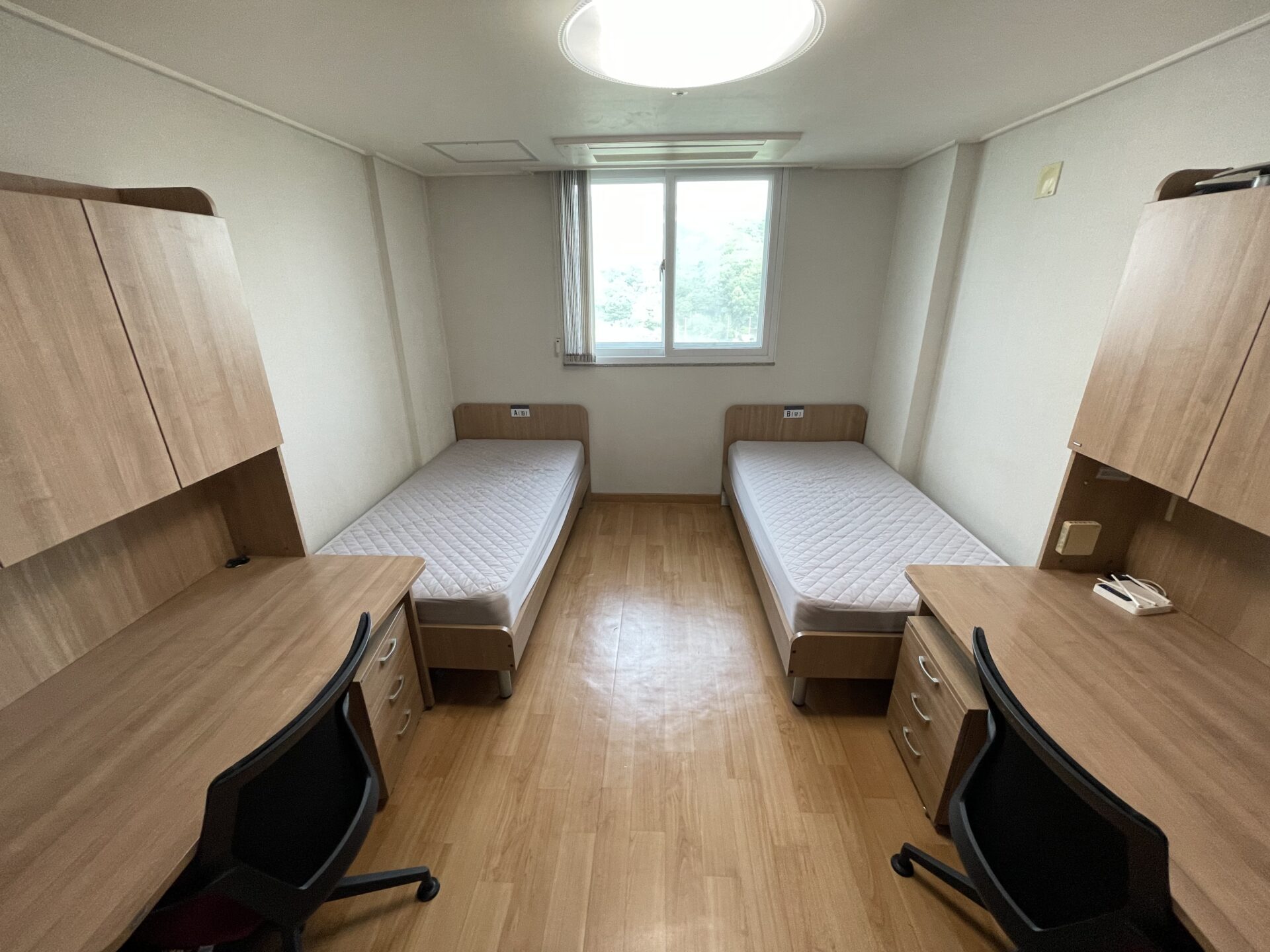
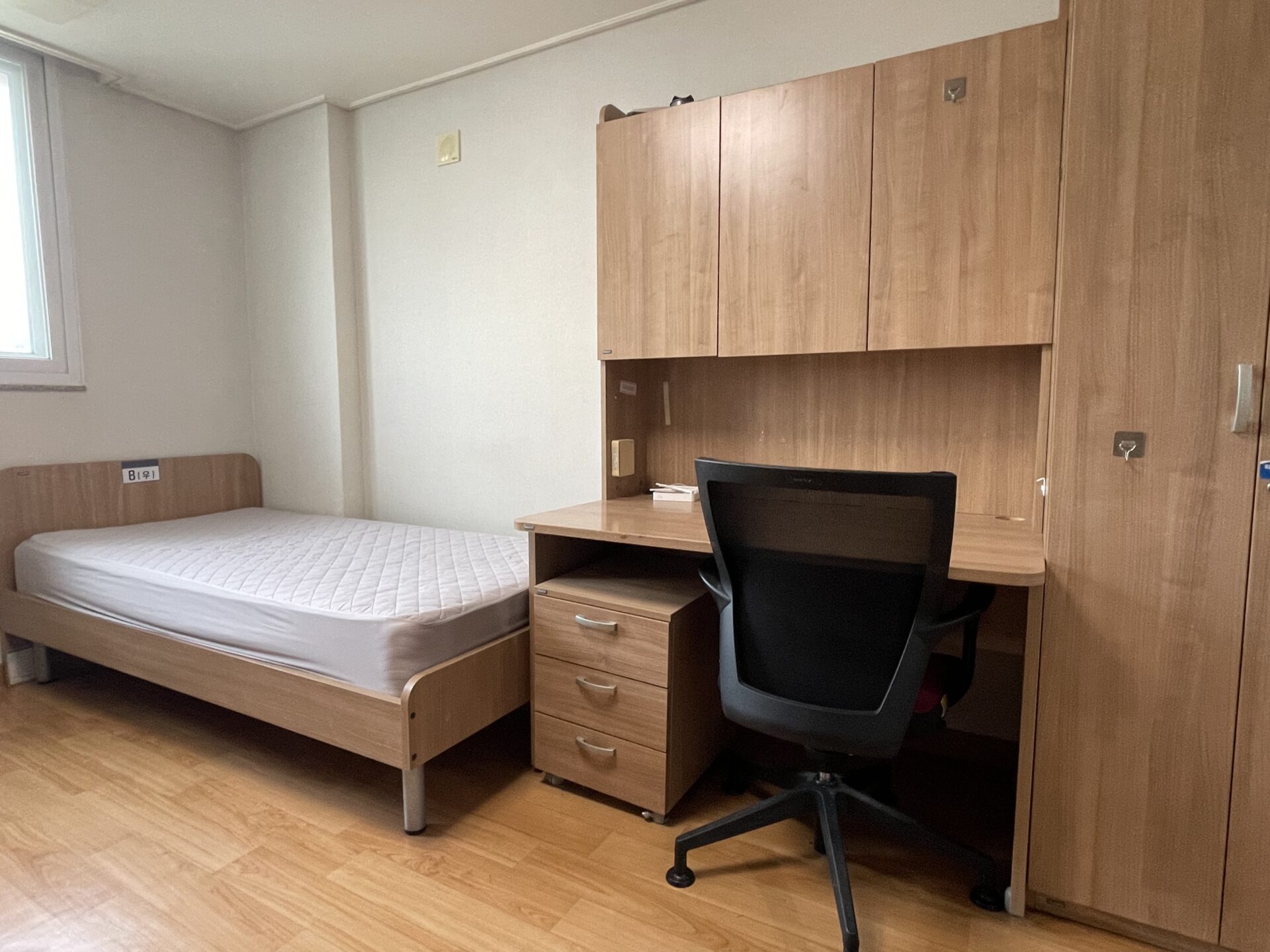
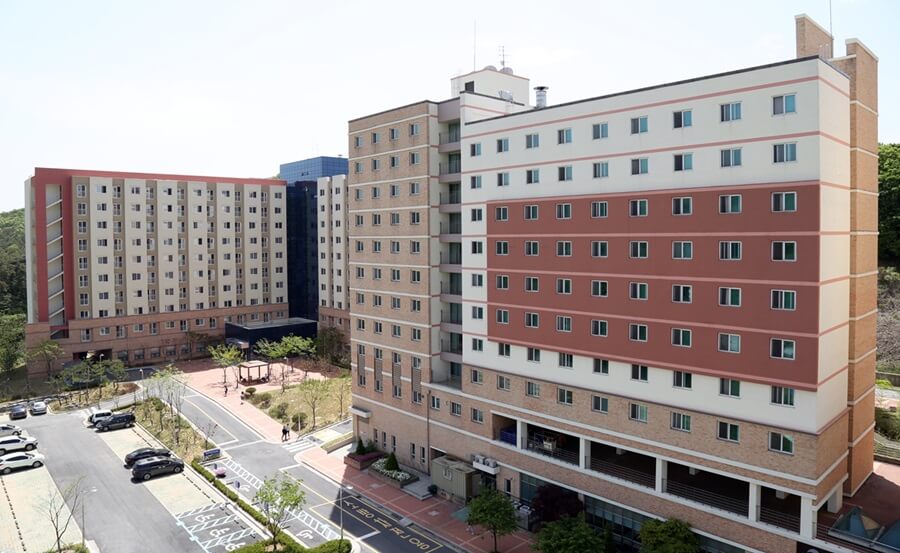
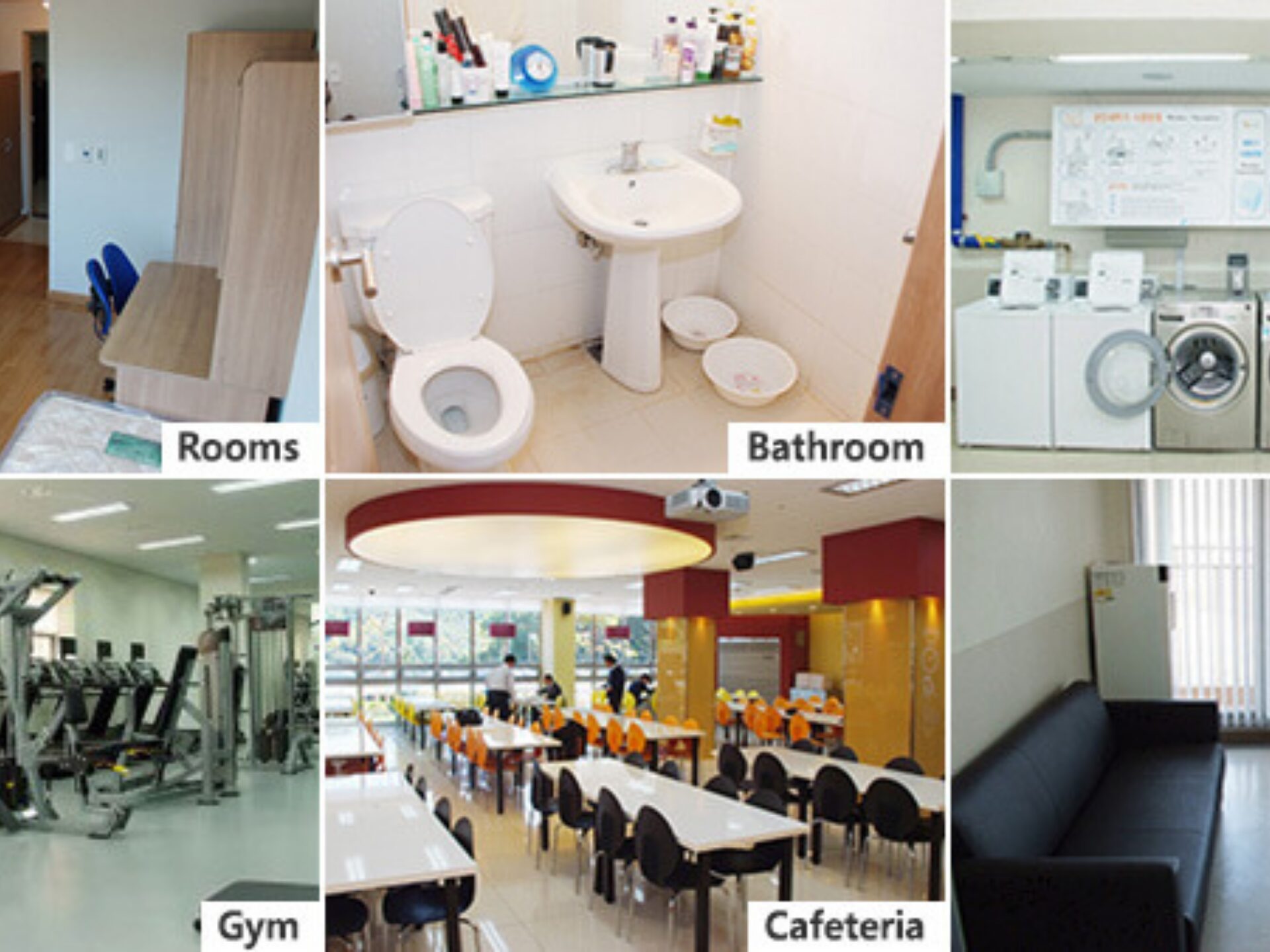
Housing
All Stanley Abroad students are guaranteed modern, double-occupancy housing in Dankook University’s on-campus dormitories. Each room includes a private bathroom, essential furnishings, and bedding, creating a comfortable and convenient space to call home. The dorms also offer shared study lounges, high-speed Wi-Fi, laundry rooms, and access to fitness facilities — all within walking distance of your classrooms. On-site security and support staff are available to ensure a safe and welcoming environment throughout your stay.
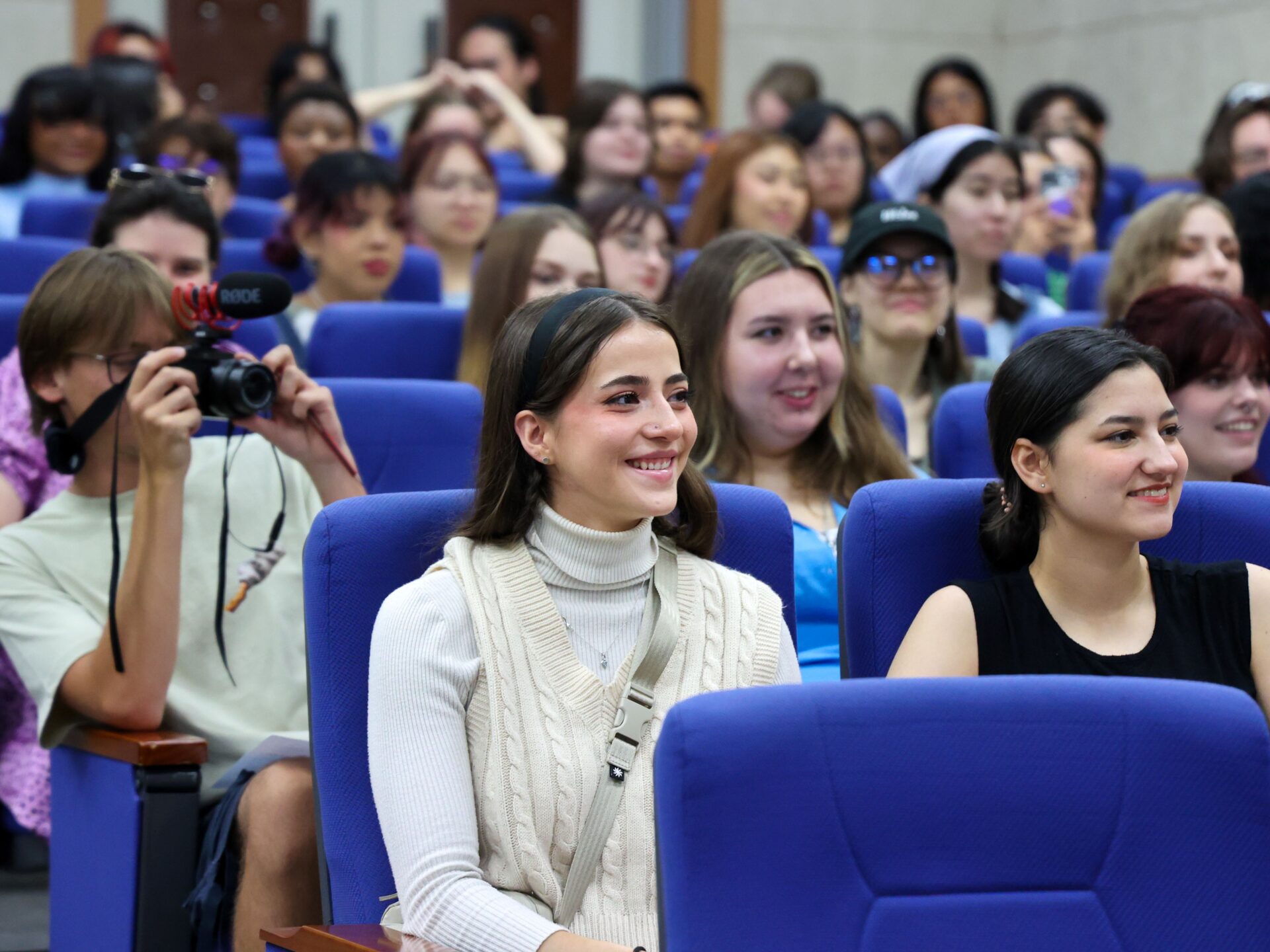
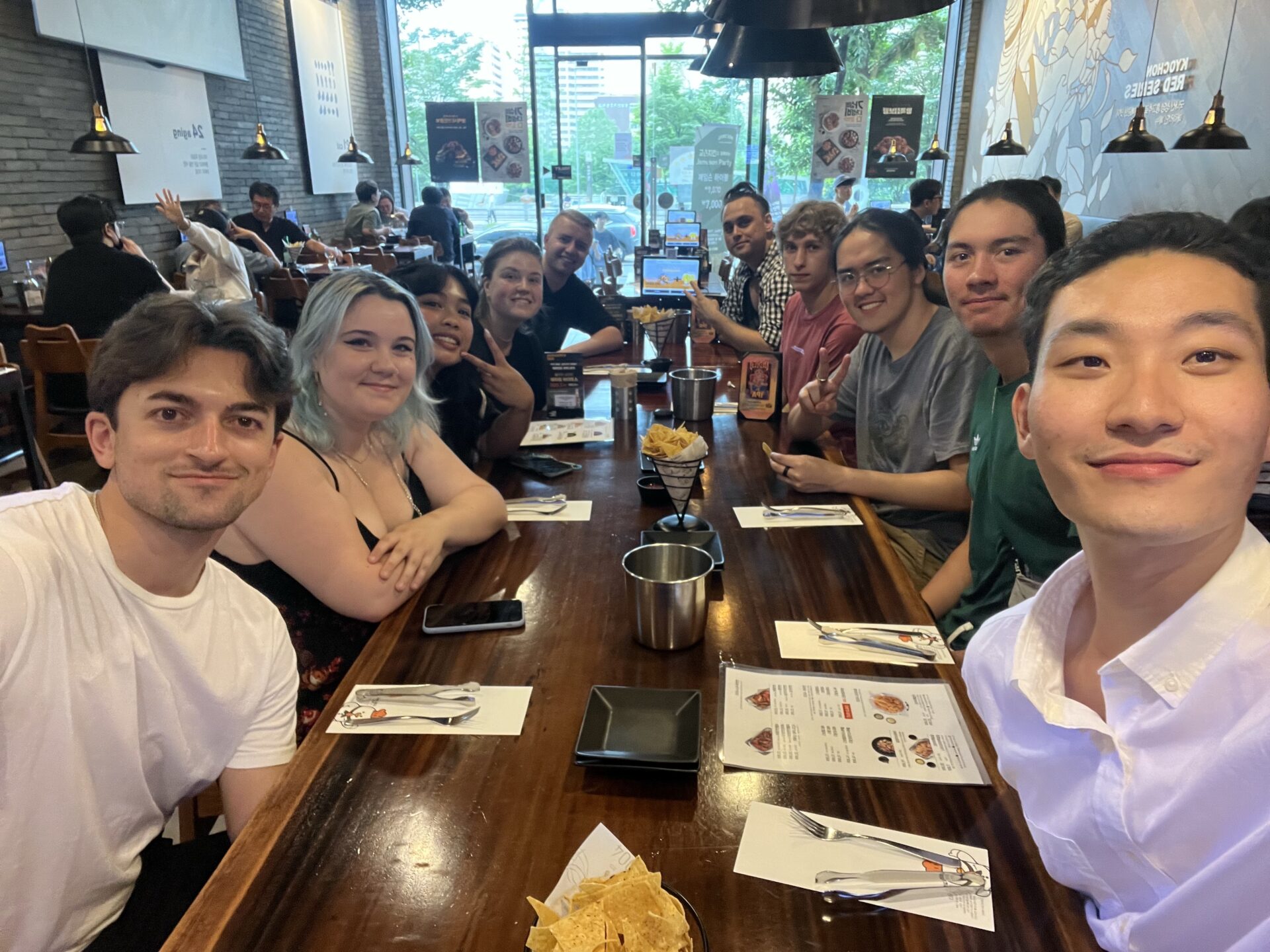
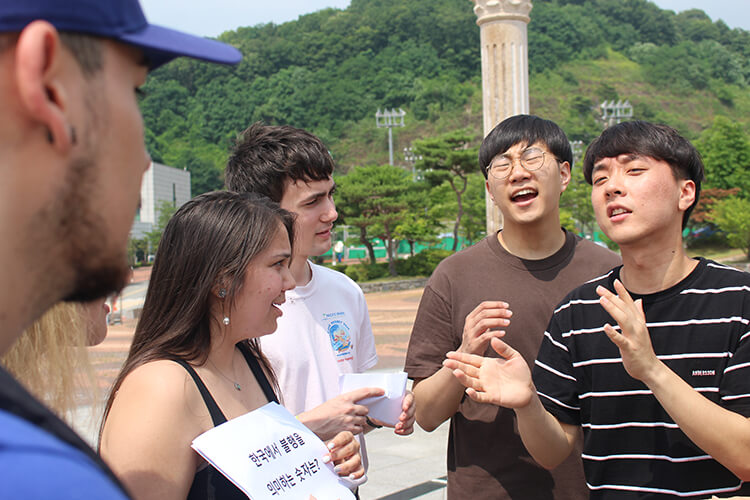
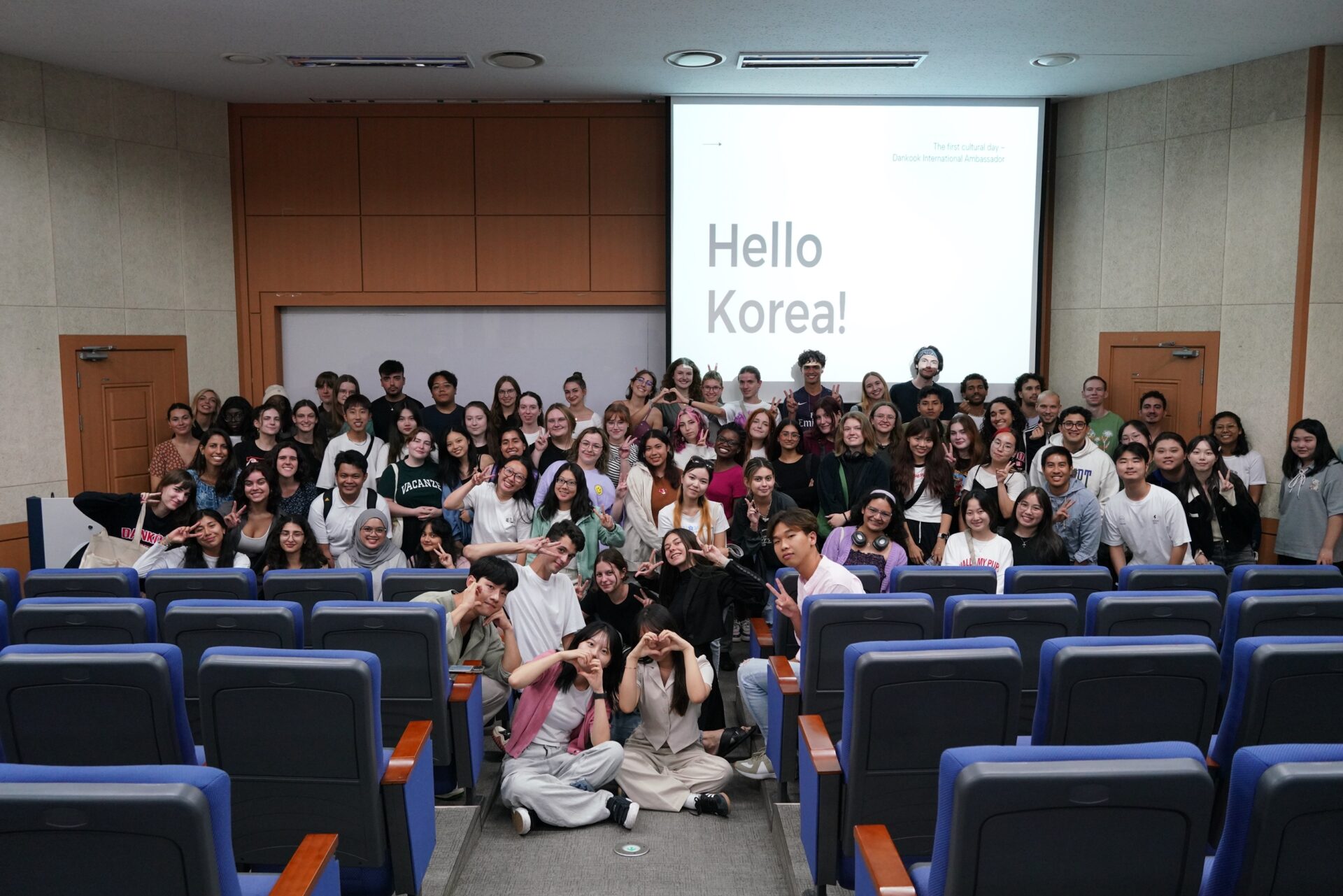
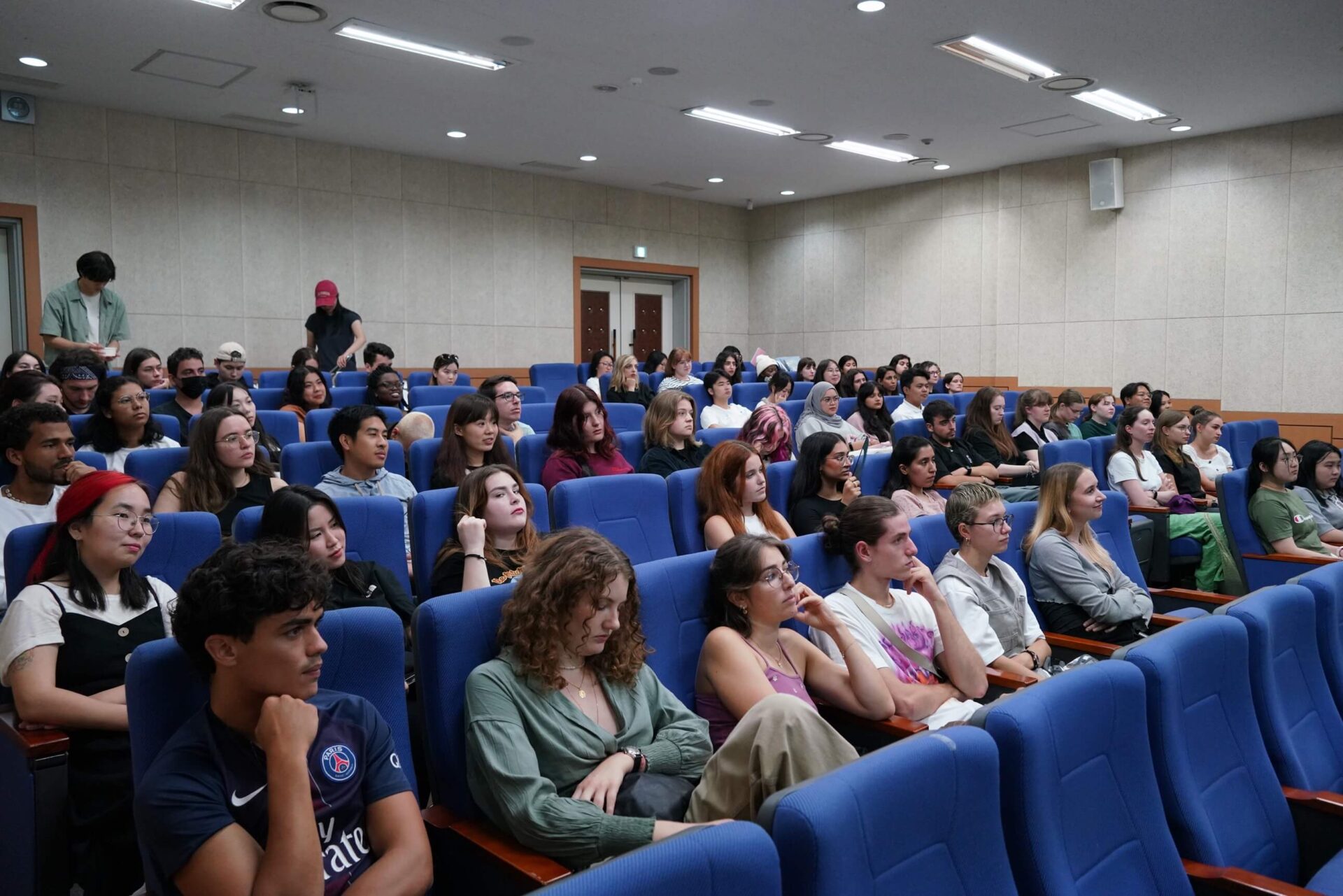
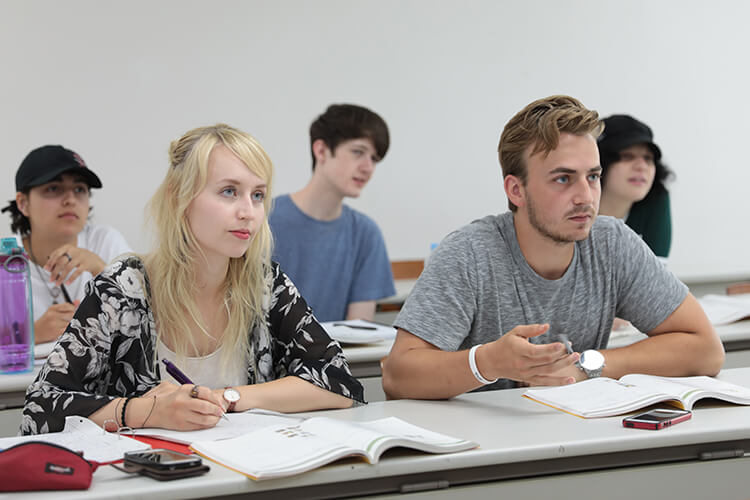
Site Support
From the moment you arrive in Korea, Stanley Abroad and Dankook’s international office are here to support you. You’ll participate in an on-site orientation that helps you adjust to your new environment, understand academic expectations, and get connected with resources. Dedicated advisors are available to assist with everything from course selection and health services to everyday logistics like getting a SIM card, setting up a bank account, or finding a nearby clinic.
We also guide you through Korea’s visa and Alien Registration Card (ARC) process, so you’re always legally prepared. Plus, through the Buddy Program, you’ll be matched with a Korean student who can help you navigate daily life and build authentic connections.
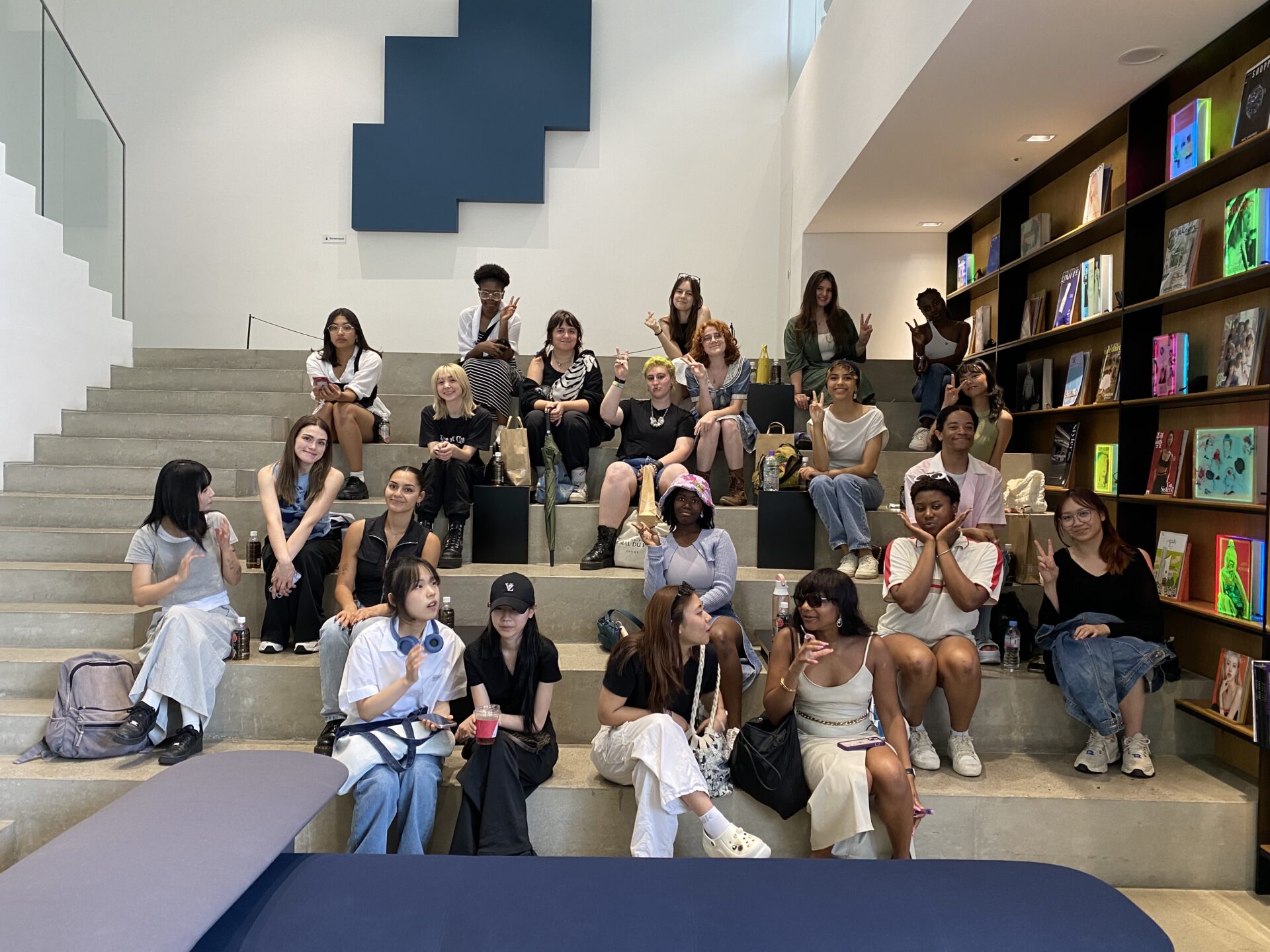
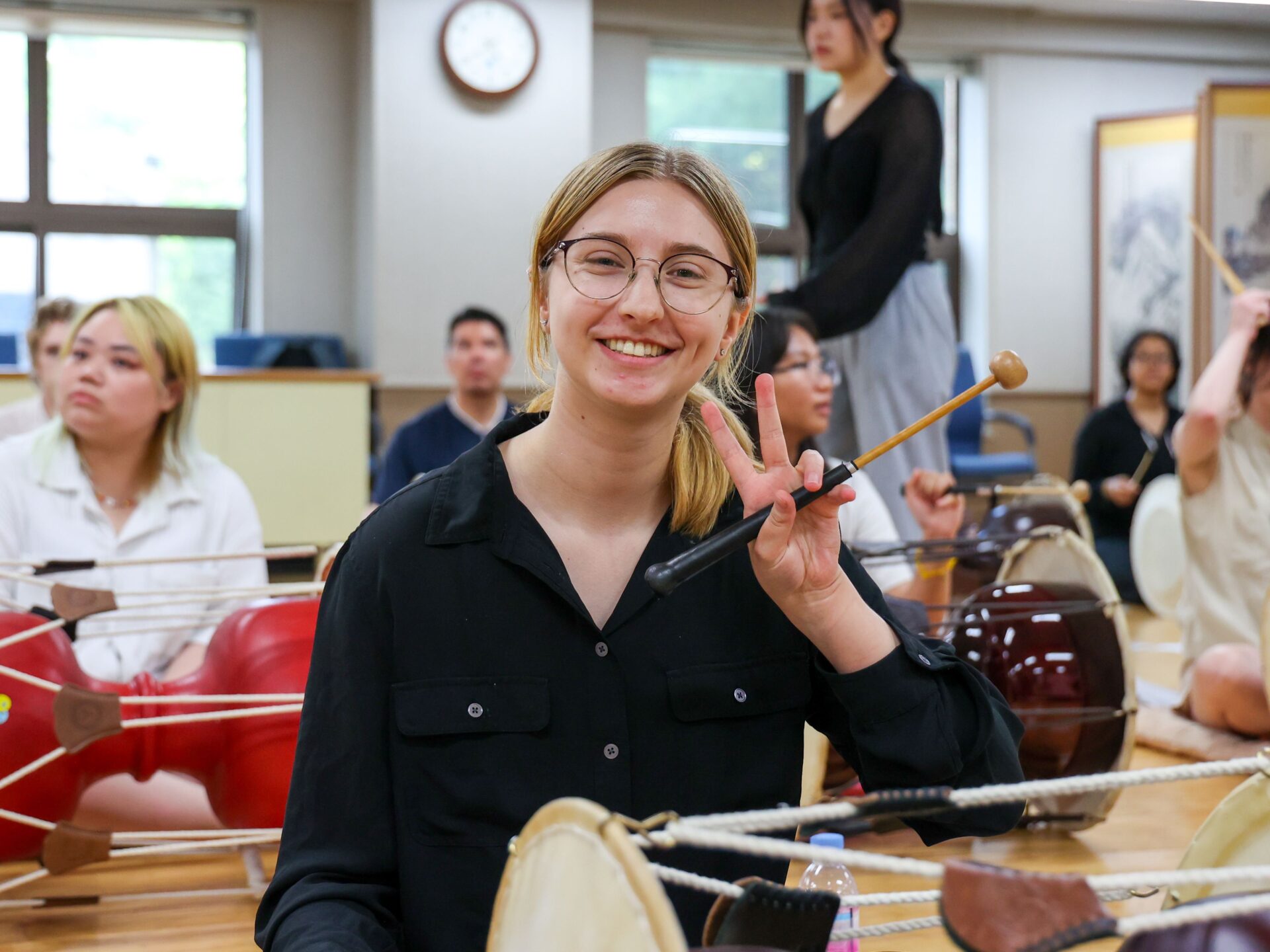
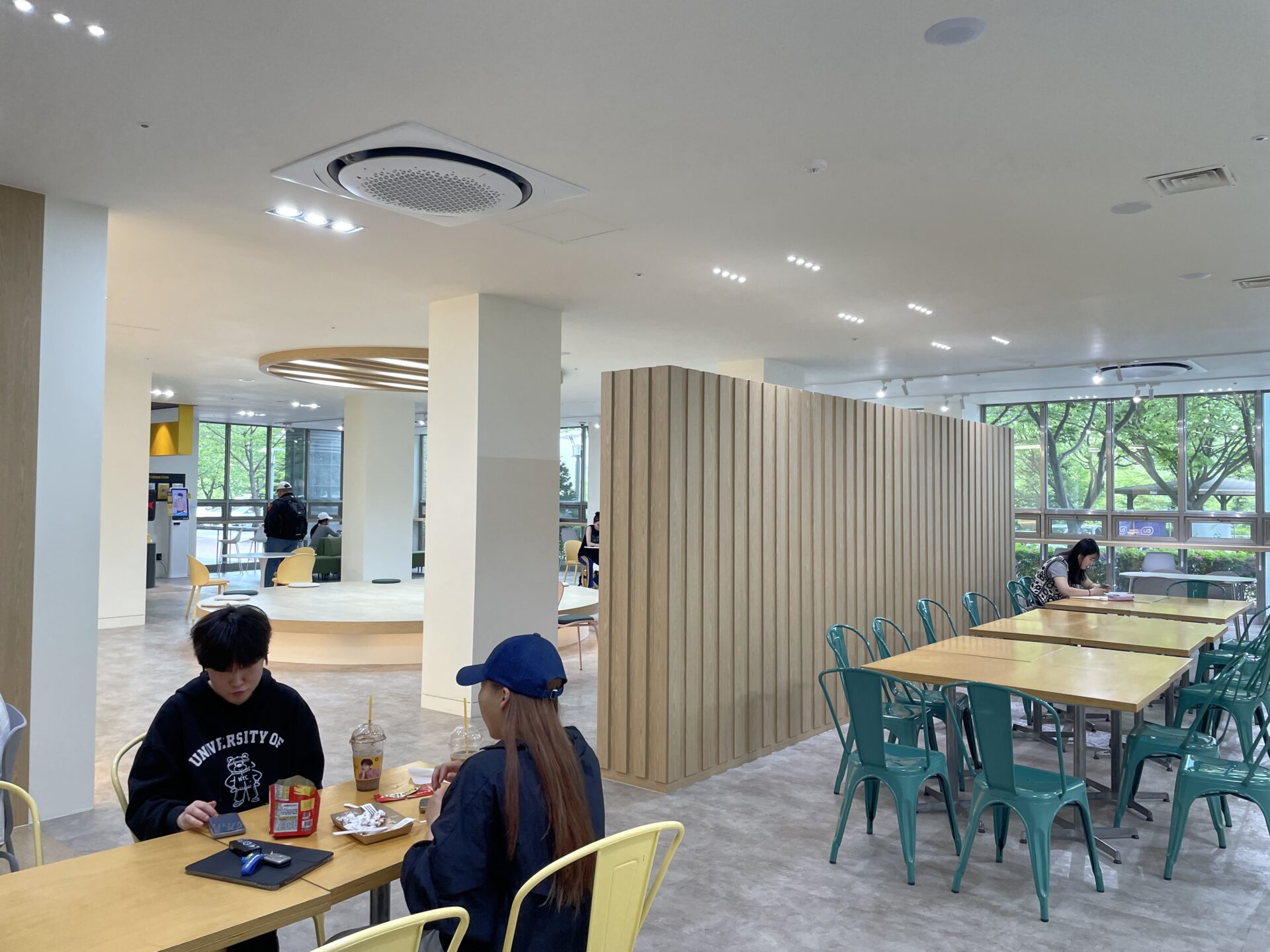

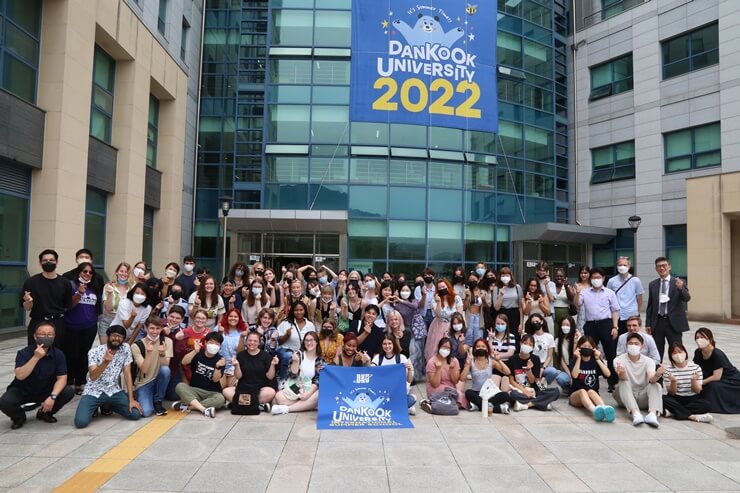
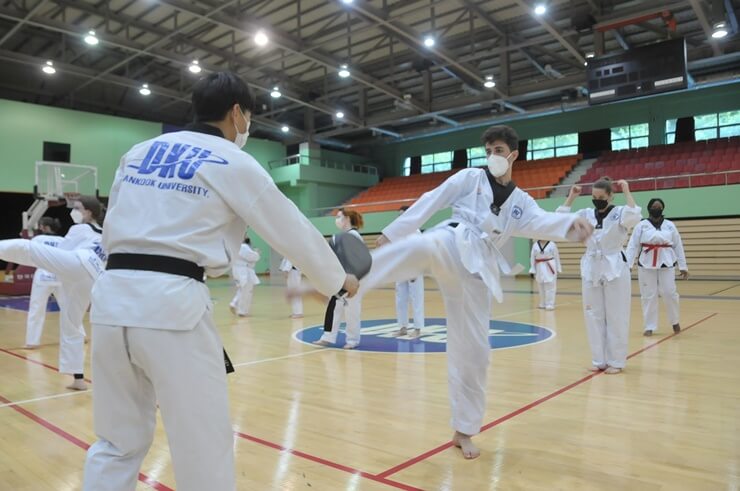
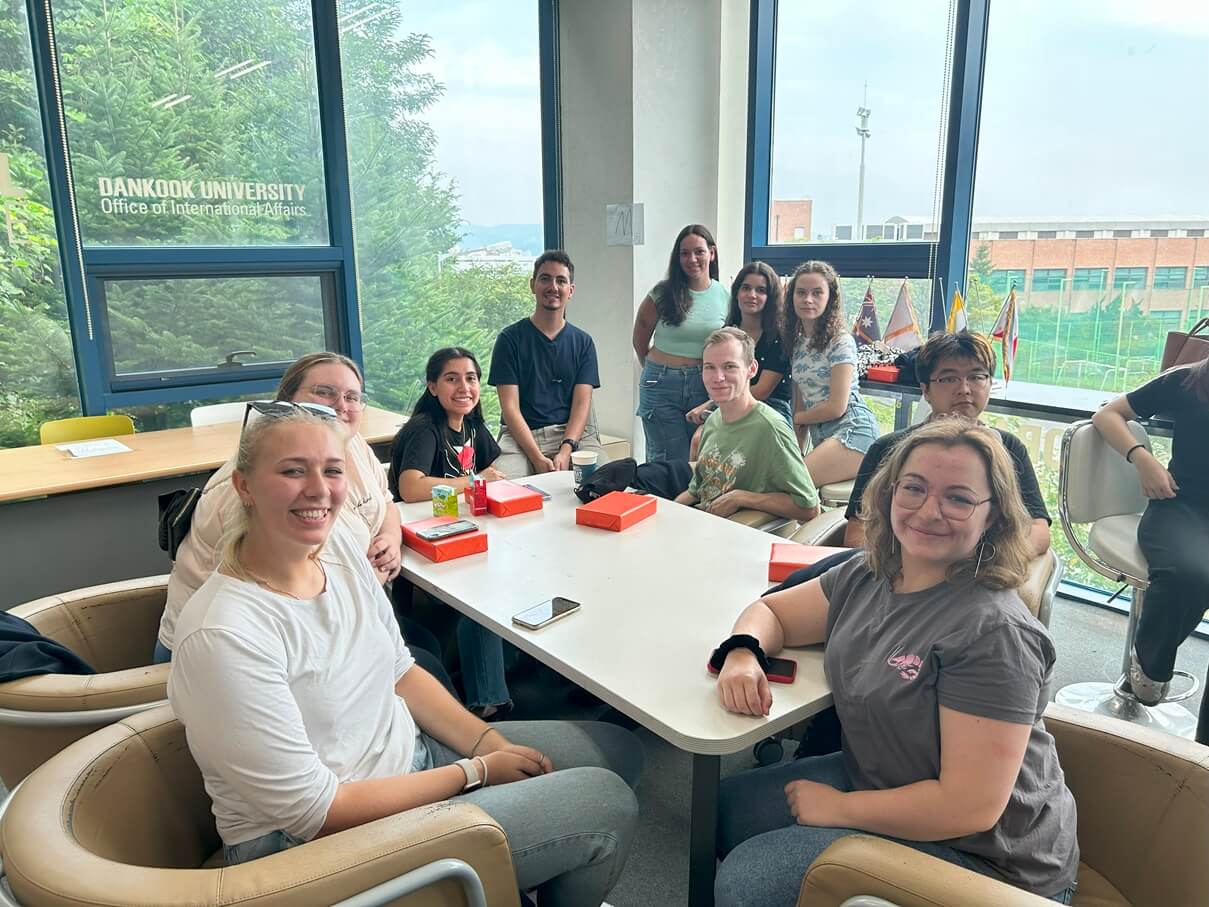
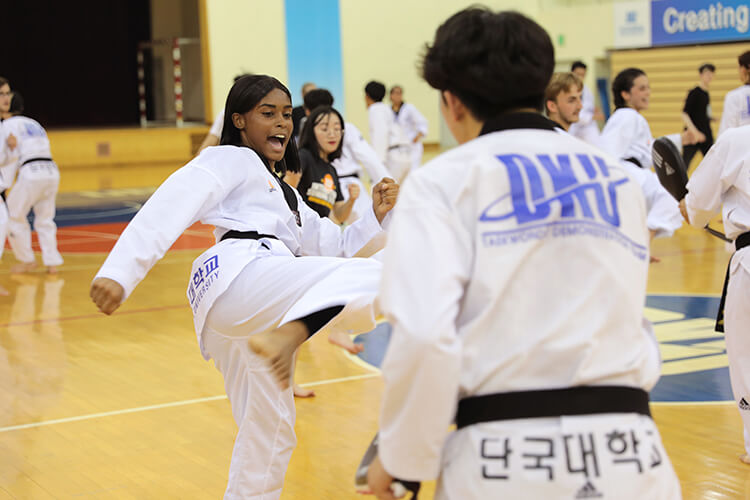
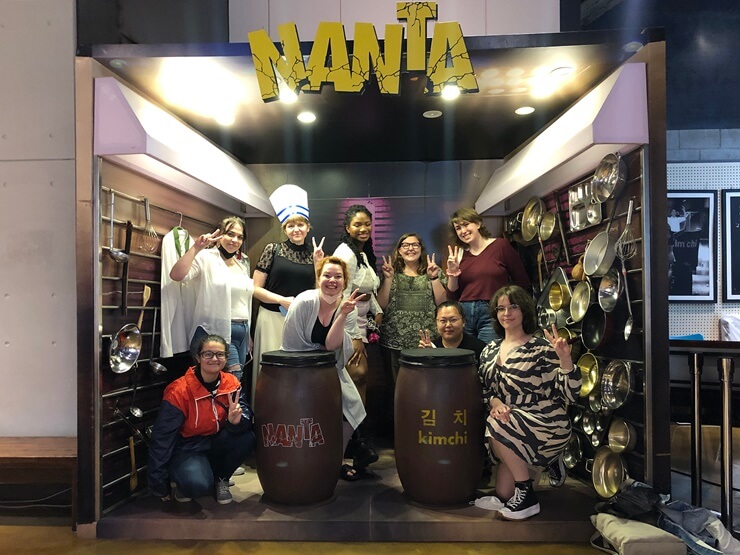
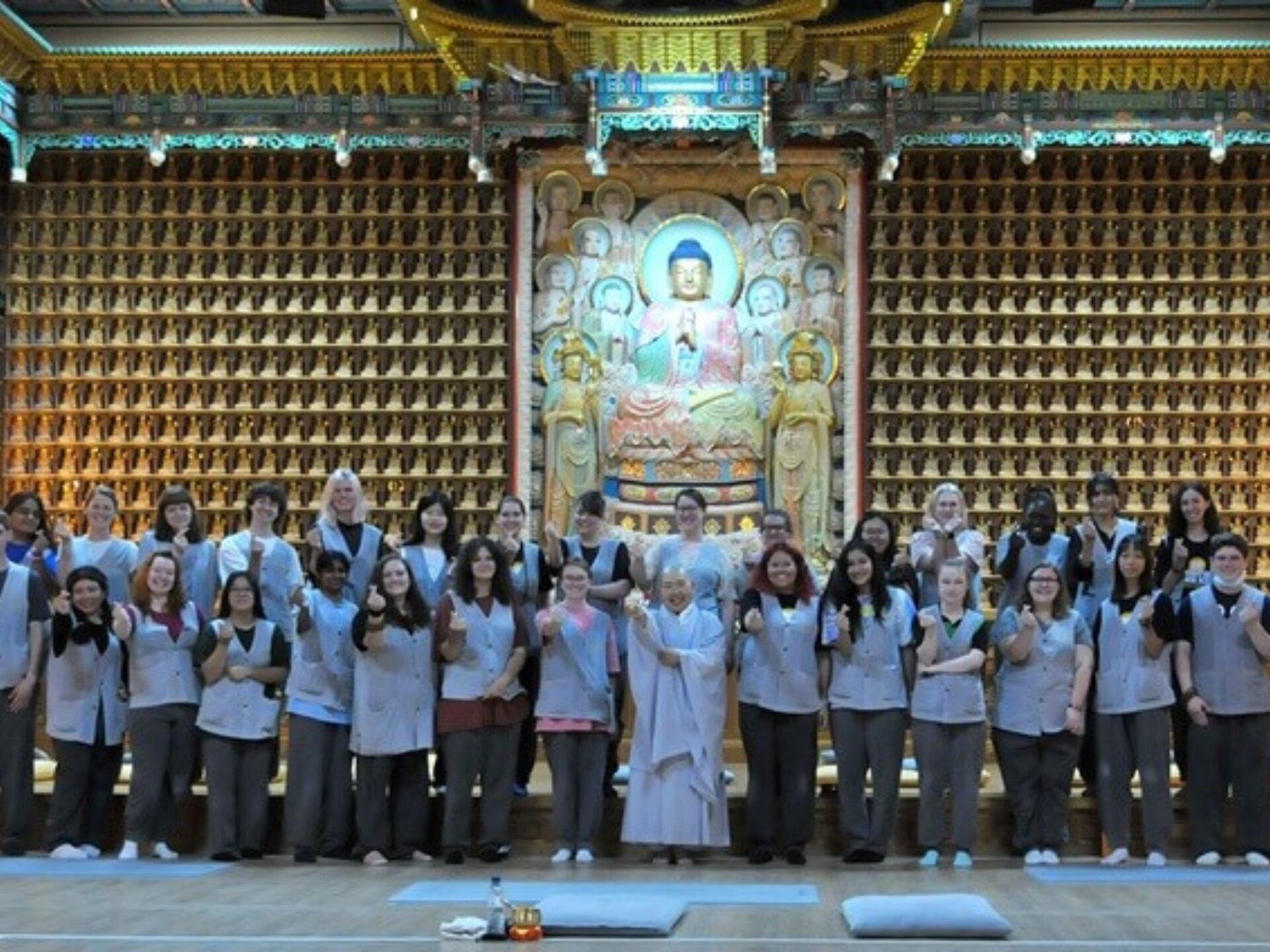
On-Campus Life
Beyond the classroom, Dankook offers a vibrant student community with endless ways to get involved. Join one of the many student clubs, ranging from cultural interest groups and performing arts to academic and volunteer organizations. Sports facilities are open for recreational use, and fitness classes are a fun way to stay active while meeting fellow students.
The campus regularly hosts cultural workshops, seasonal events, and language exchanges that allow you to engage with both Korean students and other international peers — making your study abroad experience as enriching socially as it is academically.
The Stanley Abroad Difference
Go beyond the classroom and into the heart of Korea.
At Stanley Abroad, cultural excursions aren’t just tours — they’re professionally guided, hands-on experiences designed to immerse you in Korea’s heritage, creativity, and global influence.
Students participate in exclusive K-pop dance workshops led by professional choreographers and backup dancers for world-renowned groups like BTS, Blackpink, Twice, and Seventeen. For those interested in martial arts, our Taekwondo sessions are taught by licensed masters, offering both physical training and cultural insight into Korea’s national sport.
You’ll also dive into Korea’s traditional crafts and cuisine through ceramic-making workshops with master potters in Icheon, a UNESCO-recognized ceramics city, and kimchi-making classes taught by acclaimed culinary artisans known for preserving Korea’s rich fermentation traditions.
In addition to these immersive activities, you’ll explore iconic sites such as Gyeongbokgung Palace, the DMZ, Busan’s coastlines, and K-drama hotspots — all thoughtfully selected to deepen your connection to Korean culture while creating unforgettable memories.
Excursions may vary by semester but are designed to deepen your cultural understanding and help you connect meaningfully with local life.
*All activities and excursions include: Ground transportation, admission fees, organized tours, lodging and breakfast on each day of the itinerary.
Signature Weekend Escapes by Stanley Abroad
Explore more. Expereince deeper. Only with Stanley Abroad’s Signature Tours.
At Stanley Abroad, our Signature Excursions take you farther — to Jeju’s volcanic coastlines, Busan’s seaside lights, and Korea’s most unforgettable hidden gems. These curated weekend getaways are more than just trips — they’re immersive journeys designed to deepen your cultural connection, spark adventure, and create memories that last long after the semester ends.
Explore more. Experience deeper. Only with Stanley Abroad.
Week 2: Welcome to Seoul: History, Heritage, and Culinary Delights
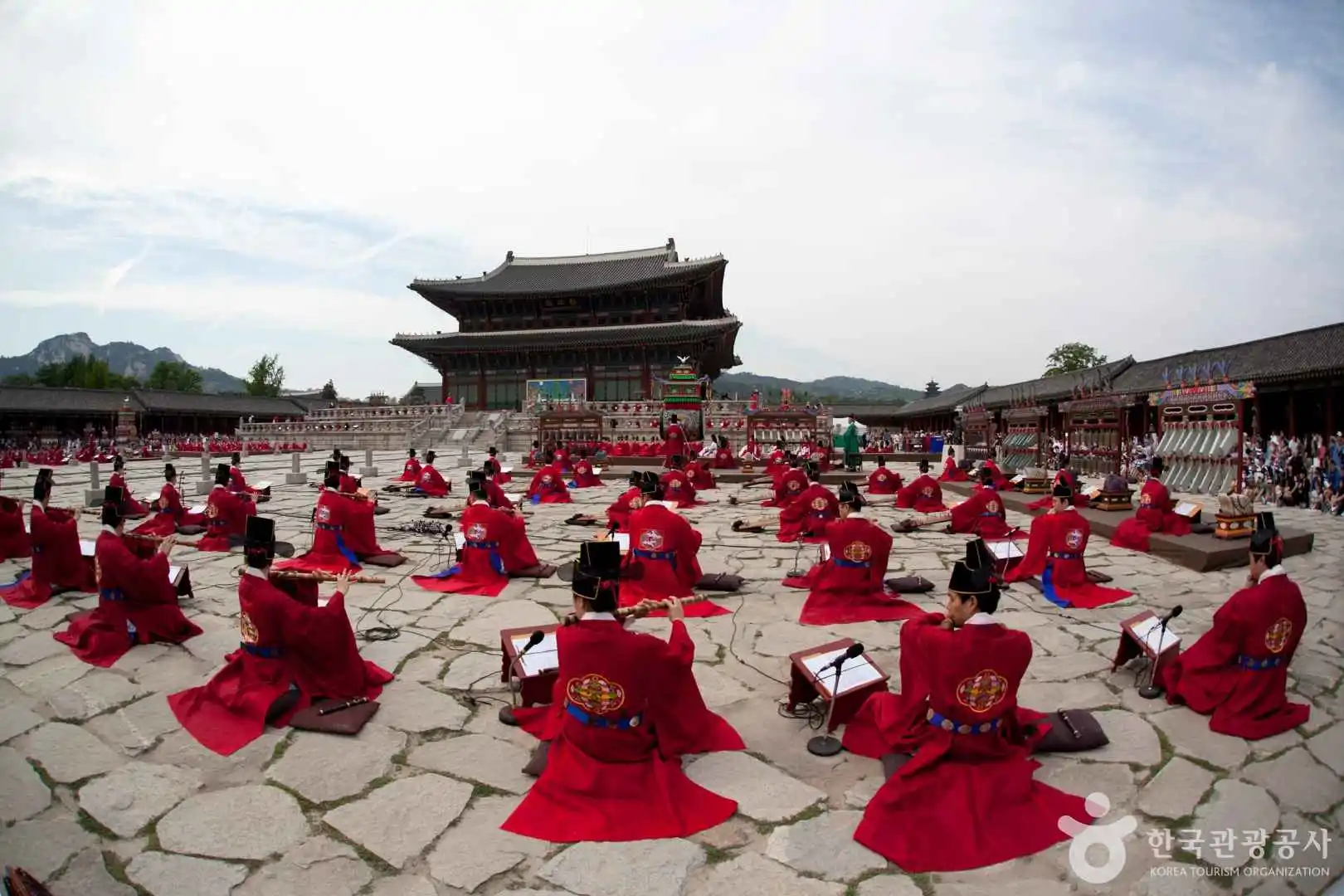
Activities:
- Gyeongbokgung Palace + Hanbok rental
- Bukchon Hanok Village & Insadong walk
- K-Food Tour
- Cheonggyecheon Stream night stroll

Extra Cultural Treat:
- Vocal training + studio recording + photocard souvenir
- Professional photo shoot in hanbok or idol outfit
Week 4: Incheon Uncovered: Streets, Shores & Stories

Activities:
- Explore Chinatown + Songwol-dong Fairy Tale Village
- Wolmido Island games & coastal views
- Optional: Visit Songdo Central Park or Tri-bowl
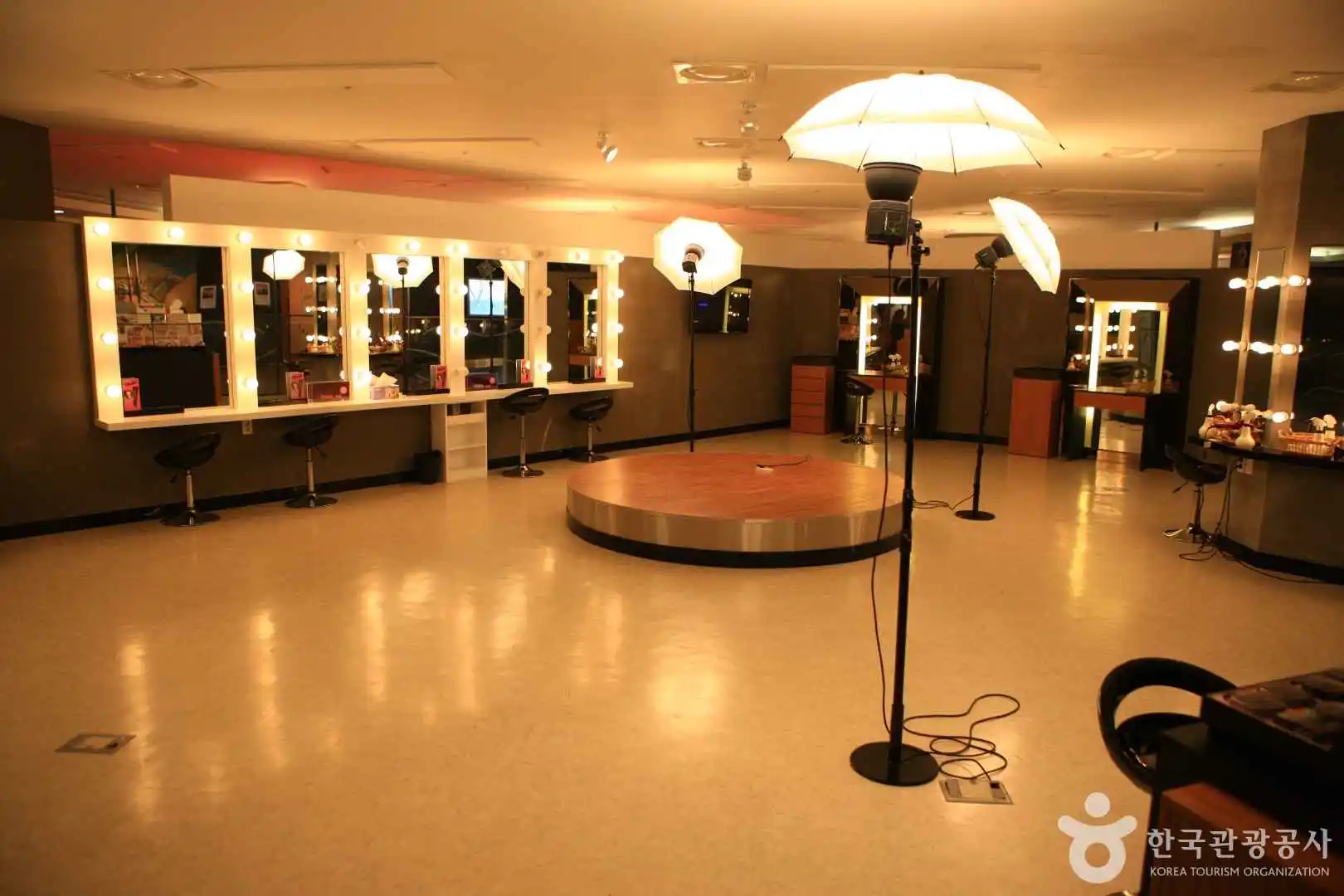
Extra Cultural Treat:
- K-beauty box & private consultation with beauty specialist
Week 6: K-Wave Dreams: K-Pop Beats & K-Beauty Treats
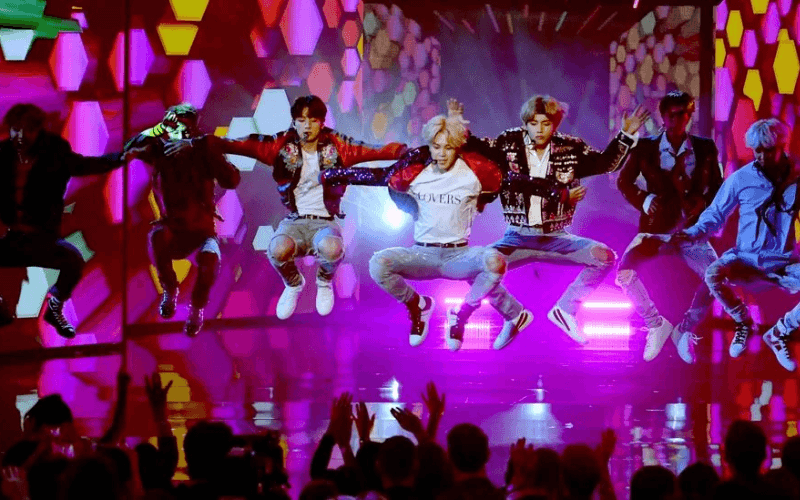
Activities:
- K-pop concert
- K-pop dance workshop (Real K-Pop or Hallyu Experience Center)
- K-beauty skincare & makeup workshop

Extra Cultural Treat:
- Vocal training + studio recording + photocard souvenir
- Professional photo shoot in hanbok or idol outfit
- K-beauty box & private consultation with beauty specialist
Week 8: Suwon Fortress + Kimchi + Hanbok + Pottery Day
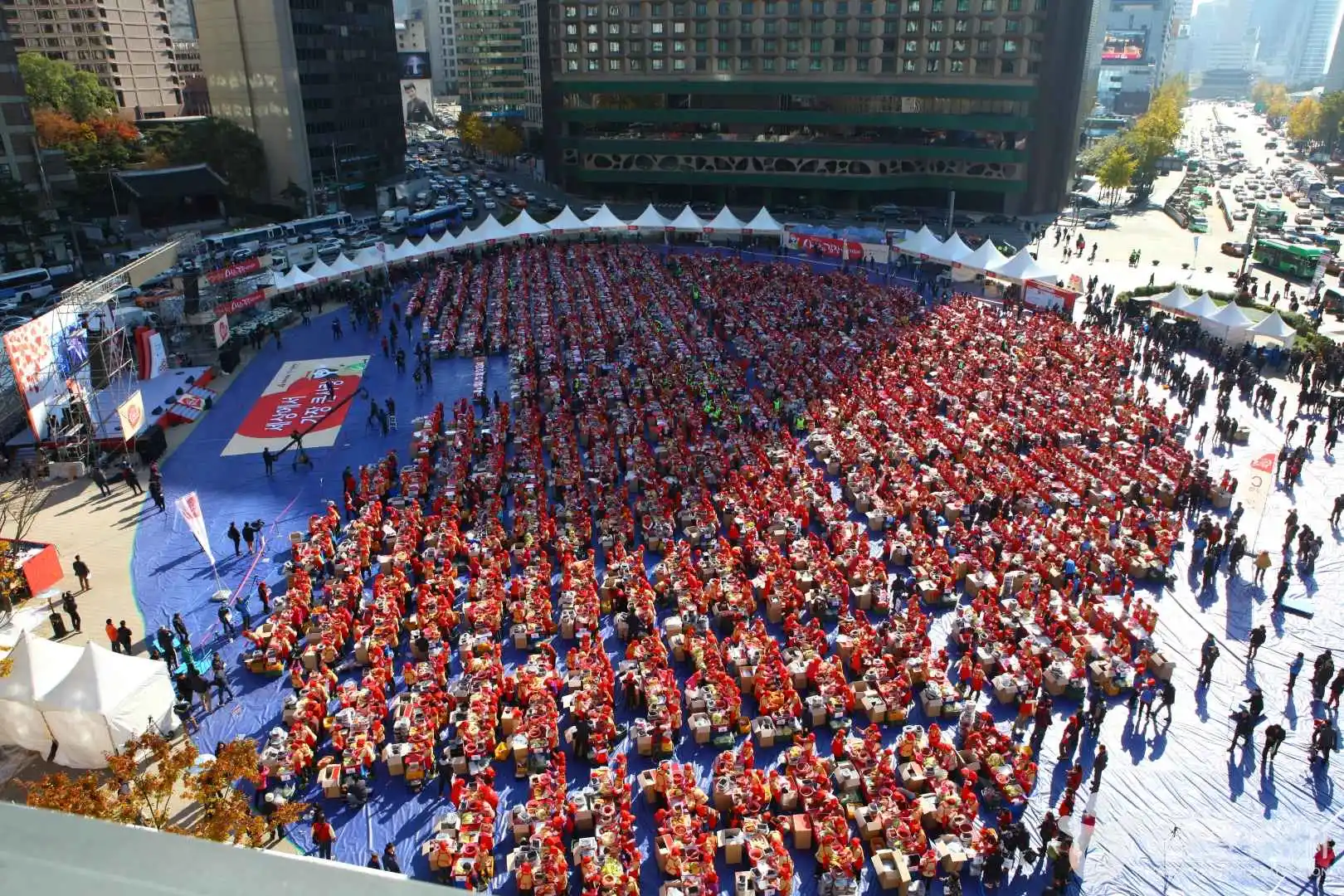
Activities:
- Suwon Hwaseong Fortress (UNESCO) tour
- Try Korean archery at fortress walls
- Kimchi-making class with take-home jar
- Korean Folk Village visit + hanbok try-on
- Korean Pottery-making class
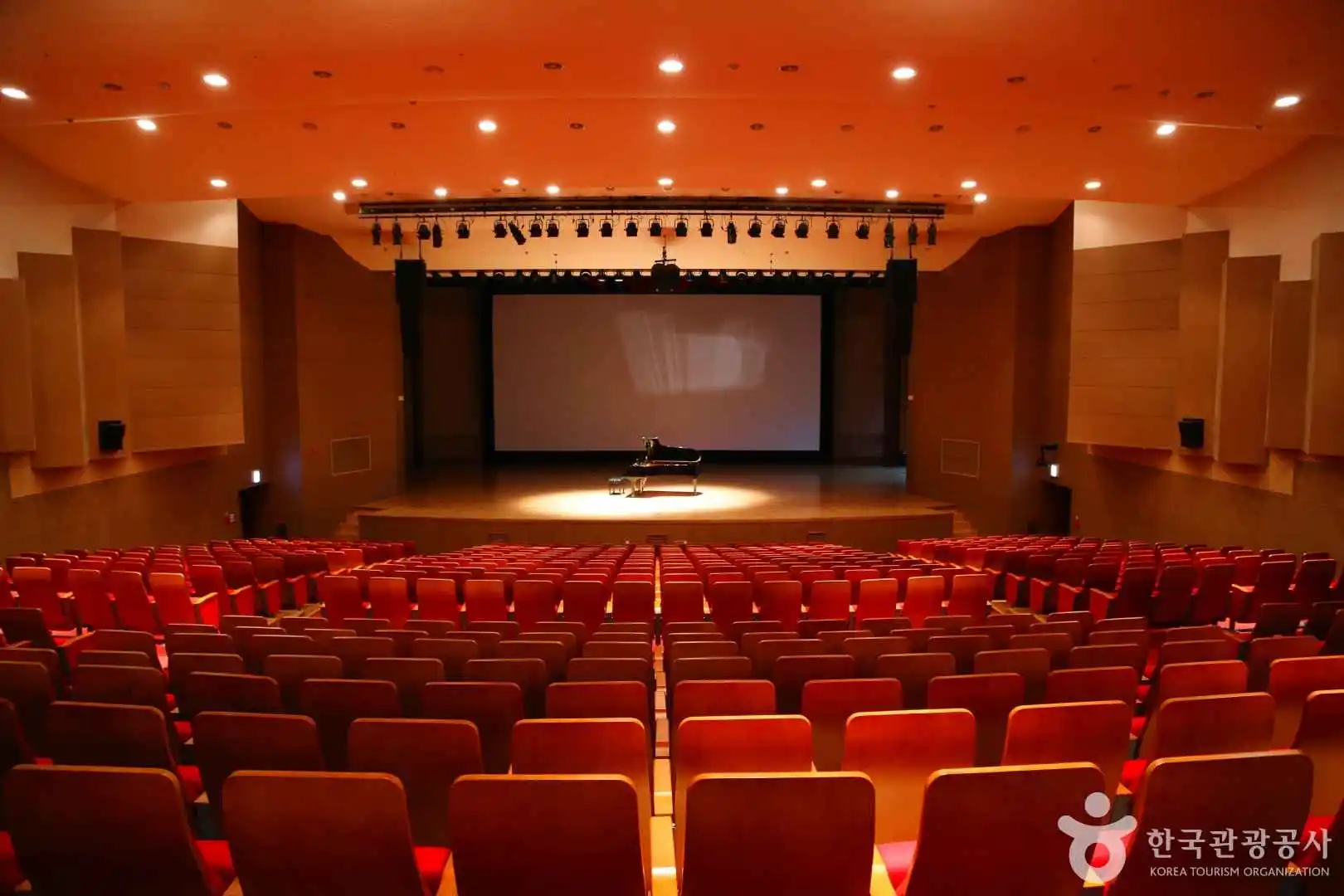
Extra Cultural Treat:
- Full folk village tour with lunch & cultural performance seating
Week 10: DMZ Discovery + Peace & Unity Day Tour
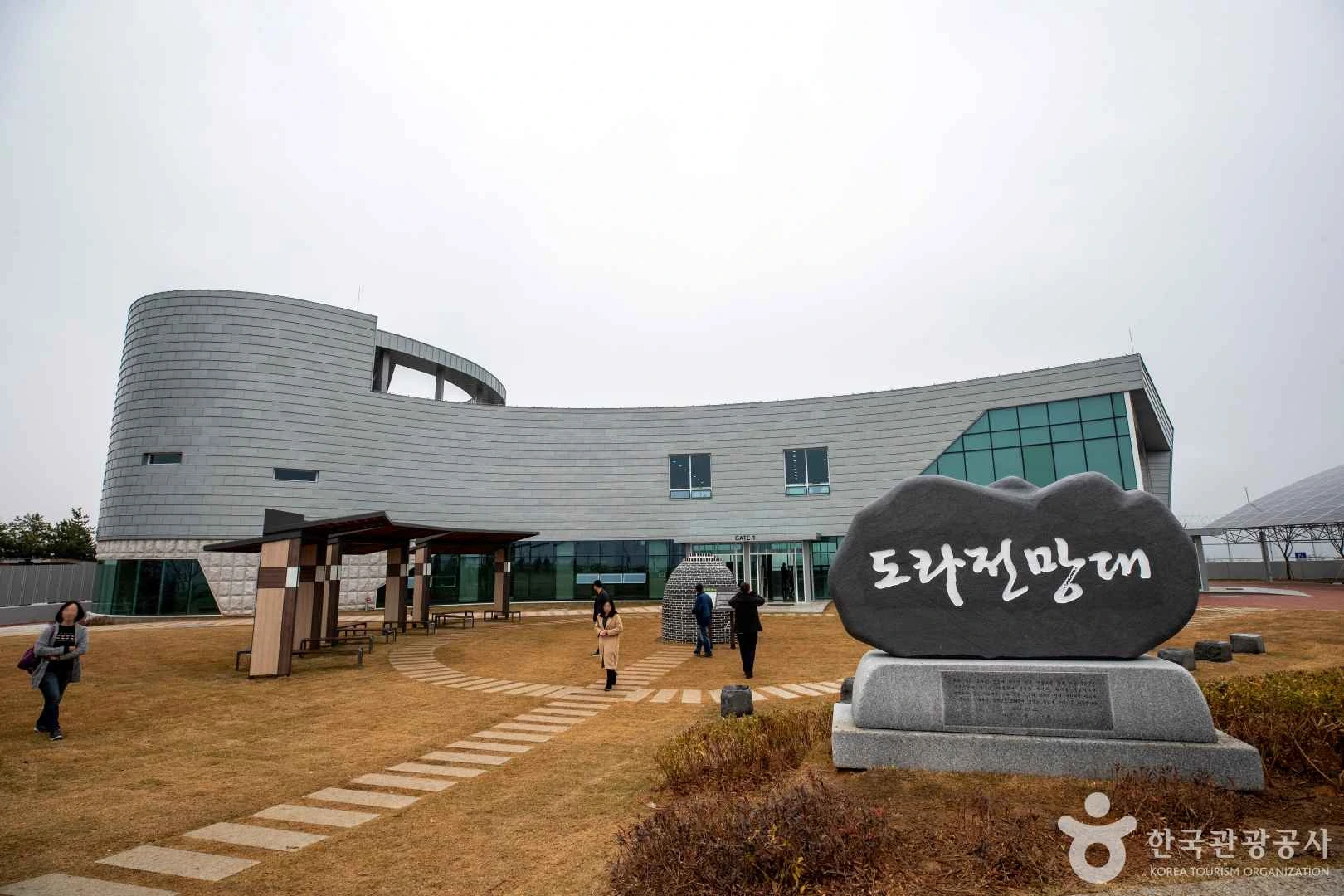
Activities:
- Visit Dora Observatory for a view into North Korea
- Walk through the 3rd Infiltration Tunnel used during the Korean War
- Tour Dorasan Station — the symbolic railway to a reunified future
- Explore the DMZ Exhibition Hall (interactive museum)
- Stop at Imjingak Peace Park for a stroll across the Freedom Bridge
- Visit the War Memorial of Korea (on return to Seoul)
- Try North Korean-style cold noodles (naengmyeon) at a local eatery
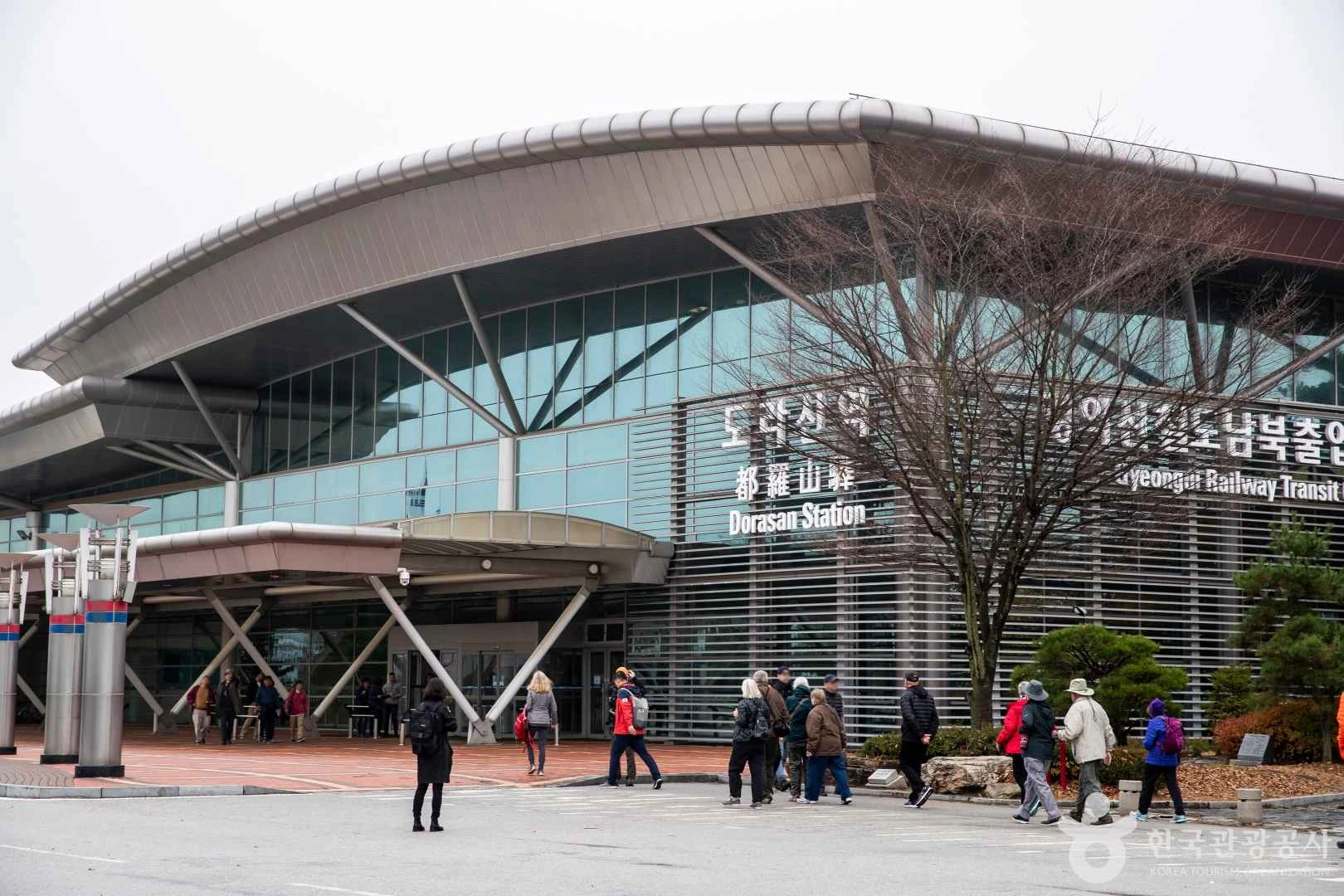
Extra Cultural Treat:
- Receive a DMZ Travel Certificate + commemorative pin
- Optional student photo essay challenge (post-tour activity)
Week 12: Chuncheon Escape: Lakeside Views & Cultural Stay

Activities:
- Dakgalbi lunch at Chuncheon food street
- Uiam Lake paddleboats or Soyang River Skywalk
- Temple Stay (Overnight at a Korean temple)
- Optional: Visit to Hwacheon Peace Dam and a Korean military base

Extra Cultural Treat:
- Small-group K-drama themed van tour + BTS-style photo spots
Midterm Break Signature Trip: Busan & Fukuoka Gateway (4D3N)

Activities:
- Explore Gamcheon Culture Village and Haeundae Beach in Busan
- Visit Haedong Yonggungsa Temple on the coast
- Ferry ride to Fukuoka, Japan + overnight stay
- Tour Ohori Park, Fukuoka Castle Ruins, and Canal City Mall
- Try local ramen, street snacks, and Japanese omiyage shopping

Extra Cultural Treat:
- Korean–Japanese fusion dinner + travel diary challenge across borders
End-of-Semester Signature Trip: Jeju Island Adventure (3D2N)

Activities:
- Hike Seongsan Ilchulbong Sunrise Peak or take coastal photos
- Explore Manjanggul Lava Tube and Hallasan foothills
- Try tangerine picking or Jeju-style soap-making
- Visit Jeju Folk Village + Black Pork BBQ night
- Stroll the scenic Aewol coastal café road

Extra Cultural Treat:
- Personalized “My Korea Journey” reflection kit + group bonfire by the beach
Tools to Help You Thrive — Before You Even Board the Plane
At Stanley Abroad, we don’t just drop you into a new country — we equip you with the knowledge, context, and confidence to make the most of your time in Korea. Whether you’re figuring out how to bow properly, what to wear to class, or how to ride the subway, we’ve got you covered with practical, student-friendly resources you can access before and during your stay.
Included in your onboarding package:
- Pre-departure Guide: What to pack, what to expect, and how to prepare mentally and logistically
- Korean Etiquette & Customs Handbook: Cultural do’s and don’ts to help you navigate daily interactions
- Language Survival Tips: Key phrases and expressions to get around, make friends, and show respect
- Transportation How-To: A quick guide to Korea’s public transport system, apps, and travel hacks
- Safety & Wellness Resource Sheet: Health tips, emergency contacts, and ways to take care of yourself abroad
- 24/7 Support Contact Sheet: Know who to call and when — no matter what comes up
These resources are built from real student experiences — and designed to help you hit the ground running.
Important Dates & Deadlines*
| Event | Spring 2026 | Fall 2026 |
| Program Application Deadline** | November 1 | June 1 |
| Scholarship Application Deadline | October 25 | May 25 |
| Deposit Deadline* | November 1 | June 1 |
| Balance of Fees Payment Deadline | December 1 | July 1 |
| Pre-Departure Orientation (Online) | January 17 | August 8 |
| Arrival and Dorm Move-in | February 23 - 24 | August 25 - 26 |
| Orientation | February 25 - 26 | August 27 - 28 |
| Classes Begin | March 3 | September 1 |
| Midterms | April 9 - 20 | October 9 - 20 |
| Midterm Excursion | April 25 - 27 | October 23 - 25 |
| Classes End | June 21 | December 22 |
| Final Exam | June 8 - 21 | December 8 - 22 |
| Dorm Move-out | June 30 | December 31 |
Notes:
*All dates are subject to change based on university calendars and other local factors. Stanley Abroad will notify students of any updates as early as possible.
**An $80 application fee is required. This fee is non-refundable.
Stanley Abroad Global Access Scholarships
Opening Doors to Korea — One Student at a Time
We believe studying abroad should be accessible to everyone. That’s why Stanley Abroad offers three levels of scholarship support to help make your journey to Korea possible — regardless of financial background.
Tier 1: Global Leader Award
Tier 2: Access & Equity Grant
Tier 3: Travel Boost Stipend
How to Apply
- Complete your Stanley Abroad program application
- Submit a short personal statement (300–500 words)
- Provide a resume or list of extracurriculars
- Include proof of financial need (if applying for Tier 2 or 3)
Application Deadline: Rolling basis — apply early for priority consideration.
What You Pay. What You Get. How We Help.
What to Expect When Studying (and Living) in South Korea
Your program fee covers more than just tuition — it ensures a fully supported experience from the day you apply to the day you return home. Studying abroad with Stanley Abroad means you’re backed by a team that handles the logistics, so you can focus on learning, exploring, and thriving in Korea.
What’s included in the program fee:
- Full-time tuition at Dankook University (up to 19 credits)
- On-campus housing in double-occupancy dormitories
- Korean language courses (optional but included)
- Course syllabi for U.S. credit pre-approval
- Pre-departure orientation and visa support
- On-site orientation and welcome activities
- Comprehensive ,edical insurance
- 24/7 local support and emergency assistance
- Buddy Program with local Korean students
- Access to student clubs, campus events, and facilities
- Top Tier cultural excursions and local activities
Note: Program fees do not include airfare, meals, personal expenses, visa application fees, or international insurance. These vary by student and are outlined in our Pre-Departure Guide.
Estimated Program Fee and Expenses
| Program Fee and Housing | Estimated Cost USD |
|---|---|
| Up to 15 Academic Credits | |
| Dormitory - Double Occupancy | |
| Top Tier Excursions and Cultural Immersion Activities | |
| Medical Insurance | |
| Total | $15,000.00 |
| Student's Out of Pocket Expenses | |
| Korean Visa Processing Fee | $90.00 |
| Round Trip Airfare | $2,000.00 |
| Travel Insurance | $2,000.00 |
| Meals and Daily Food Expenses | $1,200.00 |
| Textbooks and School Materials | $250.00 |
| Local Transportation (bus, subway, etc.) | $300.00 |
| Personal Expenses (SIM Card/Data Plan, entertainment, etc.) | $1,200.00 |
| Total | $7,040.00 |
Note:
*Program fee for a Semester is $15,000.00
**If a student wishes to take additional academic credits beyond 15, additional fees will apply based on the per-credit rate set by the host university.
***Out-of-pocket expenses are estimated and may vary depending on the student’s lifestyle and personal choices.
You’ll receive a detailed cost breakdown and budget planner once you start your application, and our team is available to help you explore financial aid or scholarship options from your home university.
Financial Aid
Good news — many students are able to use their existing financial aid, scholarships, or grants to help cover the cost of studying abroad with us. It’s usually a simple process! Just check in with your home university’s financial aid office to see what’s possible and what steps you need to take. If they need anything from us (like course info or program details), we’re happy to help you get what they need.
Passport and Korean Visa Information
Korea Visa & Passport Prep Checklist
All students traveling to South Korea must have a valid, signed passport from their country of citizenship. Your passport must be valid for at least six months beyond your planned return date.
If you don’t yet have a passport — or yours is close to expiring — apply or renew as soon as possible to avoid any delays in your visa processing.
- Check that your passport is valid for at least 6 months beyond your return date.
- Sign your passport.
- If applying for the first time or renewing, submit your application as early as possible.
U.S. Citizens: Visit https://travel.state.gov for application details.
- Wait for your official acceptance letter from Dankook University.
- Receive visa instructions from Stanley Abroad.
- Prepare the required documents (varies by consulate, may include):
- Completed visa application form
- Original passport + extra ID photo
- Admission letter from Dankook University
- Proof of financial support (bank statements or scholarship letter)
- Submit your D-2 visa application to the Korean Consulate in your region.
- Do NOT make travel plans while your passport is being processed.
- Pay all visa fees and shipping costs.
- K-ETA is required for short-term (under 90-day) programs – apply online before travel.
- Korean heritage students may have unique visa requirements – contact Stanley Abroad for help.
- Non-U.S. citizens must check requirements with both Korean and home country consulates.
Keep both digital and printed copies of all important documents while traveling!
Upcoming Semesters
Spring 2026
Start Fresh This Spring
Cherry blossoms, new friends, and unforgettable courses — lock in your spot early.
Fall 2026
Fall Into Korea
Crisp weather, campus festivals, and cultural discovery — your Korea adventure starts here.
YEAR 2026
Go All In — Academic Year
Two semesters. One incredible experience. Dive deep into Korea with year-long study abroad.
Student Voices
Hear What It’s Really Like to Study at Dankook University
Get a glimpse into daily life at Dankook University through the eyes of students who’ve experienced it firsthand. From academics and cultural excursions to campus friendships and personal growth, these reflections come straight from past Stanley Abroad participants who studied at Dankook — and left with stories to last a lifetime.
Whether you’re excited, curious, or a little unsure, these real student voices offer an honest look at what it’s like to live and learn at Dankook University.

“Dankook gave me the perfect mix of challenge and adventure. I loved taking classes in international business while joining weekend trips to places like Busan and the DMZ. It was an unforgettable semester.”
“Being part of the Global Village program was such a unique experience — I taught English to Korean students, improved my own Korean, and made some of my closest friends.”
“I was nervous before arriving, but the dorms were great, the support team was super helpful, and Korea quickly started to feel like a second home.”
FAQs on Dankook University
Who can apply to Study Korea Program at Dankook University?
How do I apply to Dankook University through Stanley Abroad?
- Submit your application and supporting documents to Stanley Abroad.
- Stanley Abroad will assist you with coordinating with your home university, and process your application with Dankook University on behalf of you.
What documents are required for the application?
- Passport copy
- Academic transcripts
- Study plan
- Certificate of enrollment
- ID photo
- Bank statement
- Signed pledge form
What courses can I take as a Study Korea student?
- A wide range of courses in English are available at Jukjeon Campus (e.g., Business, Law, Engineering, Humanities).
- Courses in Korean are open to students with at least TOPIK Level 3.
- You may register for up to 19 credits per semester, including intensive Korean language courses.
Can I take courses outside my major or year level?
How do I find the course list or syllabi?
Course lists for each semester are released about one month before the term begins. Use the downloadable PDF course lists HERE. Stanley Abroad is happy to assist you on this.



